A Stranger Left A Note On My Car Accusing Me Of “Parking Like A Jerk.” He Didn’t Know I Had Dashcam Footage
A Stranger Left A Note On My Car Accusing Me Of “Parking Like A Jerk.” He Didn’t Know I Had Dashcam Footage
The Note
When I walked out of the grocery store that afternoon, the first thing I noticed wasn't my car—it was the neon green paper flapping on my windshield like a warning flag. At first, I thought it was a flyer, until I got closer and saw the giant block letters written in thick black marker: "LEARN TO PARK, JERK." My stomach dropped. I looked around, half expecting someone to jump out from behind another car and yell at me. Instead, all I saw was a mostly empty parking lot and a few people loading groceries, minding their own business. Confused, I circled my car. I was well within the lines, no damage, no blocked spots, nothing. It made no sense. The back of the note had more writing: "People like you don't deserve to drive." I could feel my face getting hot. I'm not someone who looks for fights, but something about the arrogance of a stranger leaving a message like that—without even talking to me—made my blood boil. I tried to shrug it off, but the longer I stood there, the angrier I got. What kind of person goes around leaving nasty notes on perfectly parked cars?
 Image by RM AI
Image by RM AI
The Dashcam Revelation
Then I remembered something. My dashcam! I'd installed it a few months back after a hit-and-run in my neighborhood. It records even when the car is parked—front and rear views. I quickly got inside, locked the doors (just in case Mr. Note-Writer was still lurking), and pulled up the app on my phone. There it was—motion detected at 1:17 PM, just ten minutes before I returned. I pressed play, my heart racing with anticipation. The footage showed a middle-aged man in sunglasses and a baseball cap approaching my car with purpose. But here's the kicker: he wasn't checking how I parked at all. Instead, he pulled out a stack of pre-written notes from his pocket! I watched, jaw dropped, as he casually slapped one on my windshield before walking away. The camera kept rolling, showing him completely ignoring an SUV two spaces down that was legitimately parked over the line. He only targeted certain cars—smaller ones, older ones like mine. As he walked away, I noticed something bizarre in his shopping cart: a homemade sign reading "Parking Enforcement Volunteers of America." A quick Google search later confirmed what I suspected—this organization doesn't exist. This wasn't about parking at all. But what I discovered next about this self-appointed 'parking vigilante' would leave me completely speechless.
 Image by RM AI
Image by RM AI
Down the Rabbit Hole
I couldn't sleep that night. The image of that smug man slapping notes on random cars kept replaying in my mind. Around midnight, I fell down an internet rabbit hole, searching for 'Parking Enforcement Volunteers of America.' What I found was disturbing. On Reddit, dozens of threads described identical experiences across three different states. 'Got a neon green note today...' one post began, with a photo showing the EXACT same handwriting as my note. Another thread in r/mildlyinfuriating had over 200 comments from people targeted by what they called 'parking vigilantes.' I joined a neighborhood Facebook group where someone had posted security footage of a different man—but with the same MO—leaving notes on perfectly parked cars at a mall. The comments section was filled with theories: retired cops with too much time, people with control issues, or organized groups trying to intimidate certain drivers. One comment caught my attention: 'They always target economy cars, never luxury vehicles.' That matched what I saw on my dashcam. As I scrolled through more posts at 2 AM, my phone suddenly pinged with a notification. Someone had just responded to my post about the incident—with information about the man that made my blood run cold.
 Image by RM AI
Image by RM AI
The Second Encounter
A week later, I found myself back at the same grocery store, heart pounding with anticipation. Call me petty, but I had a plan. I deliberately parked in the exact same spot, making sure my dashcam was fully charged and ready to record. Before heading inside, I even adjusted the camera angle for optimal 'gotcha' footage. Throughout my shopping trip, I kept checking my watch obsessively. Thirty minutes in, forty-five, an hour... I grabbed the last items on my list and headed to checkout, constantly wondering if he'd shown up yet. As I pushed my cart through the automatic doors, I immediately scanned the parking lot—and there he was. The Parking Vigilante, in the flesh, moving methodically between cars with his shopping cart of supplies. Same baseball cap, same self-righteous posture. He hadn't noticed me yet, but I could see the stack of neon papers in his hand as he assessed a Honda Civic two rows over. My palms were sweaty as I gripped my cart. Should I confront him? Record him with my phone? Call security? What I decided to do next would change everything.
 Image by RM AI
Image by RM AI
Confrontation
I took a deep breath and marched toward him, phone recording in my hand. 'Excuse me!' I called out. The Parking Vigilante froze mid-note placement, his head snapping up like a startled deer. For a split second, our eyes locked—his widening with recognition that he'd been caught. 'I'd like to talk about this note you left on my car last week,' I said, trying to keep my voice steady despite my racing heart. 'And about your fake organization.' The effect was immediate. He abandoned his cart right there in the middle of the lot, papers fluttering to the ground as he started power-walking toward the store entrance. 'I have dashcam footage of you!' I called after him, which was apparently the magic phrase that turned his brisk walk into a full-on sprint. People turned to stare as this middle-aged man in a baseball cap bolted through the automatic doors, nearly knocking over an elderly woman with her groceries. I stood there, phone still recording, caught between feeling victorious and strangely unsettled. I'd scared him off, sure, but something about his panicked reaction seemed... excessive. Like I'd stumbled onto something bigger than just a random guy with a parking complex. When I got home and reviewed my new footage, I noticed something I'd missed in the moment—a small logo on his baseball cap that would lead me down an even darker rabbit hole.
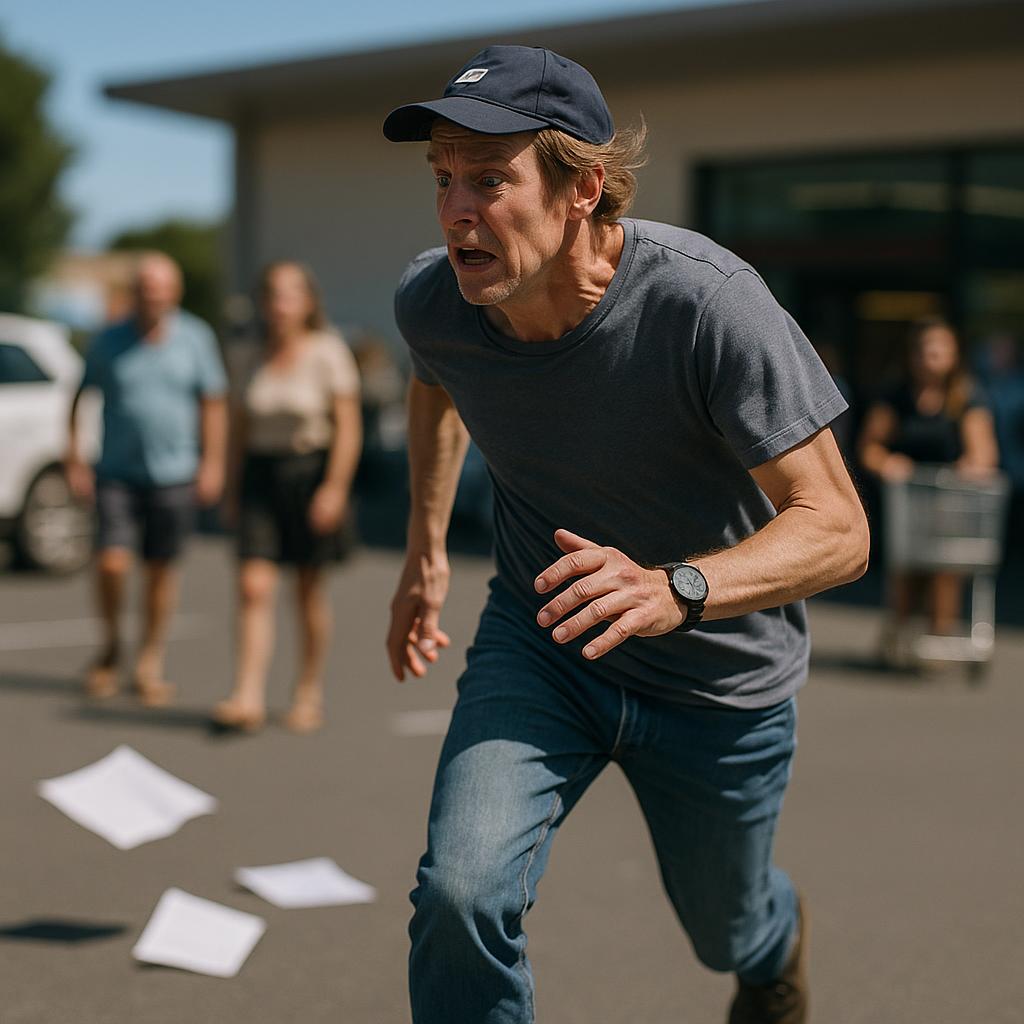 Image by RM AI
Image by RM AI
The Cart Contents
With the Parking Vigilante gone, I turned my attention to his abandoned cart sitting in the middle of the lot like a weird trophy I'd just won. I approached cautiously, half-expecting it to be a trap. What I found inside made my skin crawl. Dozens—and I mean DOZENS—of pre-written neon green notes, each with different variations of parking rage: "LEARN TO PARK, MORON," "DRIVING PRIVILEGE REVOKED," "PARKING SKILLS: F-MINUS." But that wasn't even the creepiest part. Beneath the stack was a spiral notebook with meticulous entries: dates, times, locations, and detailed car descriptions. "Blue Honda Civic, 5/12, Kroger lot." "Silver Toyota Corolla, 5/14, Target." This wasn't random—this guy had been systematically targeting cars for MONTHS. As I dug deeper, my fingers touched something plastic at the bottom. I pulled out a laminated ID badge with a photo of the man and the name "Richard Simmons" printed below it, complete with that fake organization's logo—the same one from his cap. Who makes a fake ID badge for a fake organization just to leave nasty notes? The level of commitment was both impressive and terrifying. But what I found tucked inside the notebook's back pocket would connect this bizarre parking crusade to something much more sinister.
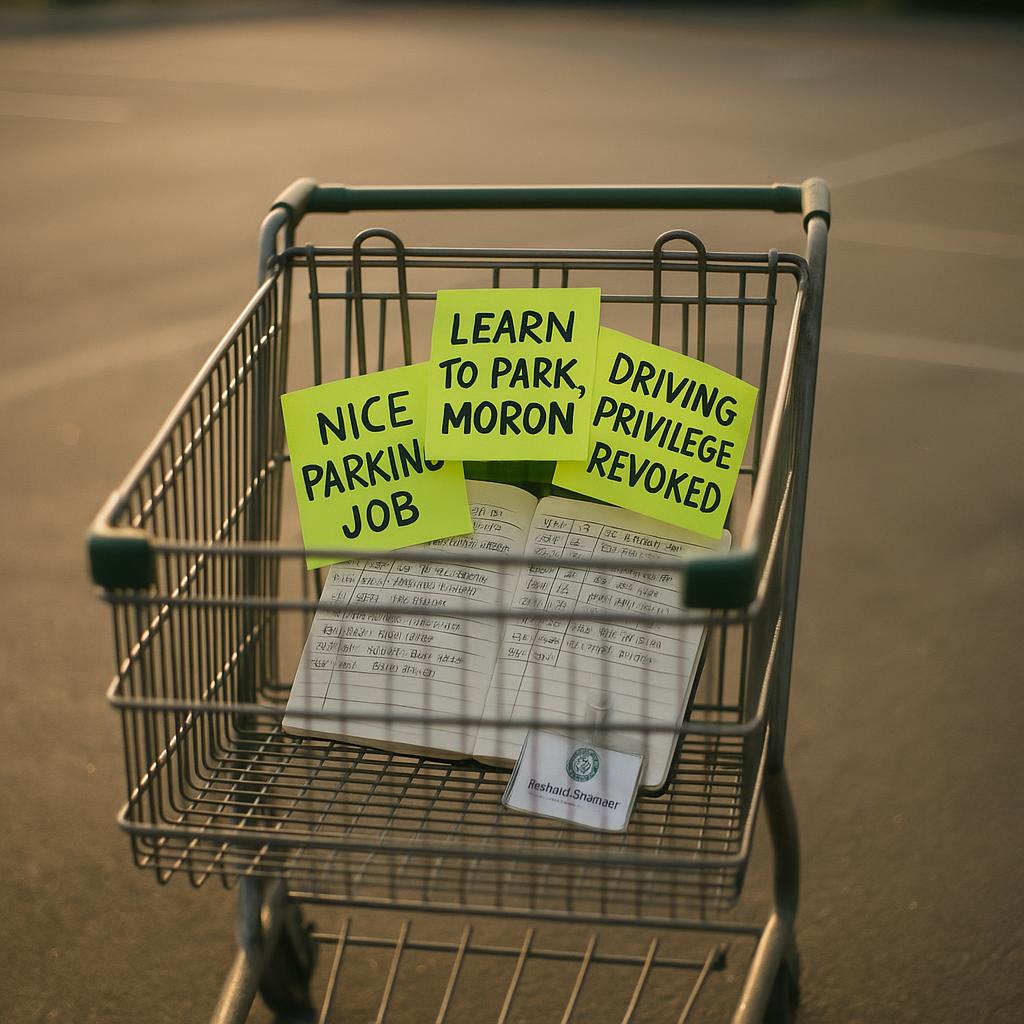 Image by RM AI
Image by RM AI
The Store Manager
I wheeled the abandoned cart straight to customer service, my phone still recording. 'I need to speak with your manager,' I said, trying not to sound like a middle-aged Karen despite literally asking for the manager. When a tired-looking woman in her fifties appeared, I launched into my explanation, showing her the dashcam footage, the notebook, and the stack of neon notes. 'This man has been harassing your customers for months,' I said, pointing to his laminated ID badge. She studied the items, her expression shifting from professional concern to something more guarded. 'Yes, we've had... complaints,' she admitted, avoiding eye contact. 'Several customers have reported finding these notes, but we've never caught him in the act.' Something in her tone made me suspicious. 'You know who he is, don't you?' I pressed. She sighed, glancing around to make sure no one was listening. 'He shops here weekly. Always pays cash, never uses a loyalty card.' She hesitated, then lowered her voice. 'Look, I shouldn't tell you this, but he's not just some random guy with too much time on his hands. The last employee who confronted him about the notes found their car vandalized the next day. All four tires slashed.' She pushed the cart back toward me. 'If I were you, I'd leave this alone. Some people aren't worth messing with.' As she walked away, I noticed something she'd slipped under the notebook—a small business card with an unfamiliar police detective's name on it.
 Image by RM AI
Image by RM AI
The Local Facebook Group
That night, I did something I'd been avoiding for months—I joined my neighborhood's Facebook group. I uploaded screenshots from my dashcam footage (with Mr. Vigilante's face blurred just enough to avoid any legal issues) and shared my bizarre experience. I expected maybe a few sympathetic comments. What I got instead was a virtual avalanche. Within three hours, my post had 87 comments and 142 reactions. 'OMG I GOT THE SAME NOTE LAST WEEK!' wrote someone named Debbie, attaching a photo of an identical neon green paper. 'This guy hit the Walgreens on Oak Street too,' added another. 'He left one on my daughter's car at the library,' chimed in a retired teacher I recognized. The comments kept flooding in—not just from my neighborhood, but from across town. One particularly tech-savvy commenter named Marcus suggested creating a separate group to track sightings of what people were now calling 'The Note Bandit.' 'We need to document this pattern,' he wrote. 'There's something seriously off about a person who spends their days doing this.' As I scrolled through dozens more stories, a private message notification popped up from someone whose name I immediately recognized—and whose connection to Richard Simmons made my stomach drop.
 Image by RM AI
Image by RM AI
The Vigilante Hunters
The next morning, fueled by equal parts caffeine and righteous indignation, I created a Facebook group called 'Parking Vigilante Hunters.' Within 24 hours, we had over 100 members, each with their own Richard Simmons story. Maya, a local librarian who'd received SIX notes in one month (apparently driving a Prius is a parking crime), became my co-admin. 'We need to map these incidents,' she messaged me. 'There's a pattern here.' So we created a shared Google Map where members could pin their note locations with dates and photos. The visualization was striking—clusters of pins in middle-class neighborhoods like mine, shopping centers with diverse clientele, and community college parking lots. What was equally telling were the blank spaces—the upscale neighborhoods, country club parking lots, and luxury car dealerships remained completely untouched by our neon-note vigilante. 'He's targeting people he thinks won't fight back,' Maya observed during our late-night strategy session. 'People with older cars, students, single women.' As our membership grew to 150, then 200, something unexpected happened—people started sending real-time alerts. 'NOTE BANDIT SPOTTED AT KROGER ON MAPLE,' read one urgent post. 'WEARING RED CAP TODAY. CURRENTLY IN AISLE 7.' Our little Facebook group had evolved into something I never anticipated: a citywide neighborhood watch dedicated to catching one very specific criminal. But what none of us realized was that Richard Simmons was watching us too.
 Image by RM AI
Image by RM AI
The Pattern Emerges
As our Parking Vigilante Hunters group grew, we started noticing something that went beyond coincidence. Maya created a spreadsheet where members could log not just locations, but details about their vehicles. The pattern was undeniable. Every single note recipient drove either an economy car, an older model, or—most tellingly—had bumper stickers supporting environmental causes, Democratic candidates, or social justice movements. 'He completely ignored my neighbor's Lexus that was literally taking up two spaces,' wrote one member, 'but left a note on my 2010 Prius that was perfectly parked.' Another shared security footage showing Richard walking past a row of SUVs with conservative stickers (one actually had a wheel over the line!) to target a compact car with a rainbow flag decal. This wasn't about parking etiquette—it was ideological harassment disguised as civic duty. 'He's using parking as an excuse to intimidate people he disagrees with,' Maya messaged me late one night. The realization made my skin crawl. How many other 'Richard Simmons' were out there, finding petty ways to make certain people feel unwelcome in public spaces? But what truly chilled me was when we discovered that several members of our group had received notes on the same day they'd posted in politically progressive Facebook groups.
The Local News
Three days after our group hit 250 members, my phone rang with an unknown local number. 'Is this the person who started the Parking Vigilante Hunters?' a woman asked. She introduced herself as Vanessa Chen from Channel 8 News, explaining that our Facebook group had caught her attention. 'We'd like to do a segment on this phenomenon,' she said, her voice carrying that perfect blend of professional interest and barely concealed excitement that journalists get when they smell a good story. The next day, I sat in my living room with a clip-on mic while Vanessa nodded thoughtfully at my dashcam footage. 'This is incredible documentation,' she said, studying the blurred image of Richard placing notes. I walked her through our spreadsheet, the map of incidents, and the undeniable pattern of targeted harassment. 'He's not policing parking—he's policing people,' I explained. Vanessa's expression grew serious. 'Without identifying him publicly, there's not much legal recourse,' she warned. 'But we can certainly shine a light on what's happening.' As she packed up her equipment, she paused. 'Just be careful,' she added. 'People who go to these lengths to intimidate others don't usually appreciate being exposed.' What neither of us realized was that our segment would air the same night Richard Simmons was scheduled to receive a community service award from a local organization with some very interesting political connections.
 Image by RM AI
Image by RM AI
The Viral Moment
The Channel 8 segment aired on a Tuesday evening, and by Wednesday morning, my phone was blowing up with notifications. What started as our little local vigilante hunt had exploded overnight. National news outlets picked up Vanessa's story, with headlines like 'Parking Police Impersonator Exposed by Dashcam Detective.' Our Facebook group membership skyrocketed from 250 to over 5,000 in just 72 hours. The comment section became a tsunami of similar stories—not just from our town, but from across three states. 'We have one of these guys in Cincinnati too!' 'Same thing happening in Phoenix!' My inbox filled with messages asking for dashcam recommendations and setup tutorials. 'How did you catch yours?' they'd ask, like I was some kind of vigilante-hunting expert. Maya created a spreadsheet to track the patterns emerging across different cities, and the similarities were undeniable. These weren't isolated incidents—this was some kind of bizarre movement. The most surreal moment came when #ParkingVigilante started trending on Twitter, with people sharing their own note photos and security footage. What began as a personal annoyance had morphed into a nationwide conversation about harassment disguised as civic duty. But amid all the viral chaos, one particular message landed in my inbox that made my blood run cold—a single line from an anonymous account: 'You should have minded your own business.'
 Image by RM AI
Image by RM AI
The Anonymous Tip
I was sorting through the avalanche of messages in my inbox when one subject line made me freeze: 'I KNOW WHO YOUR PARKING VIGILANTE IS.' The email came from a throwaway address—[email protected]. My cursor hovered over it for a moment before I clicked, half-expecting a virus or some internet troll. Instead, I found three paragraphs of detailed information. 'His name is Gerald Hoffman. Retired postal worker. Lives in Oakwood Estates.' The tipster included a link to Gerald's Facebook profile, and there he was—same baseball cap, same self-righteous smirk I'd seen on my dashcam. His profile was a goldmine of evidence: check-ins at the exact stores where notes had been reported, membership in groups with names like 'Take Back Our Streets' and 'Traditional Values Coalition.' The tipster explained that Gerald had been bragging at a neighborhood barbecue about 'teaching these liberals how to park.' I forwarded the email to Maya, my hands shaking slightly. 'We got him,' I typed. But as I scrolled through Gerald's photos—pictures of grandkids, fishing trips, church potlucks—a disturbing thought crept in: how did this anonymous tipster know I was looking for this information? And more importantly, how did they get my personal email address that wasn't posted anywhere in our Facebook group?
 Image by RM AI
Image by RM AI
The Ethical Dilemma
I stared at Gerald's Facebook profile for what felt like hours, my moral compass spinning wildly. 'Maya, we have his name, his face, his address... but what do we do with this information?' I asked during our emergency Zoom call that evening. 'If we post this in the group, people might show up at his house. That makes us no better than him.' Maya nodded, twirling a pen between her fingers. 'Doxxing him could backfire spectacularly,' she agreed. 'But letting him continue his little reign of terror feels wrong too.' We debated our options until midnight—contact police (with what crime exactly?), confront him directly (potentially dangerous), or expose him publicly (ethically questionable). Finally, we settled on a compromise: verification first. 'Let's stake out the grocery store this Saturday,' I suggested. 'If we can match the face to the name in person, we'll have confirmation before deciding next steps.' Maya agreed, adding, 'Bring snacks. Stakeouts always have snacks in the movies.' As I hung up, a notification popped up on my phone—a new email from [email protected] with the subject line: 'I know what you're planning to do with Gerald's information.'
 Image by RM AI
Image by RM AI
The Stakeout
Saturday morning found Maya and me huddled in our cars at opposite ends of the grocery store parking lot, armed with thermoses of coffee and snacks (Maya was right about the stakeout essentials). I pretended to work on my laptop while scanning the lot every few minutes, feeling like an amateur detective in some true crime podcast. At 11:47 AM, a pristine blue Ford F-150 pulled into the lot—and there he was. Gerald Hoffman in the flesh, wearing his signature baseball cap and a smug expression that made my blood boil. His truck was plastered with bumper stickers: "Back the Blue," "Don't Tread on Me," and one that read "Make Parking Great Again" (seriously?). I texted Maya: "Target acquired. Blue truck by cart return." We watched in silent fascination as Gerald began his routine, methodically circling the lot with his stack of neon papers, completely oblivious to the fact that he'd become internet famous. He passed right by an SUV taking up two spaces to slap a note on a Subaru with a "Coexist" sticker. I sank lower in my seat, heart pounding as he approached my section of the lot. That's when I noticed something that made my stomach drop—Gerald wasn't alone.
 Image by RM AI
Image by RM AI
The Police Report
Monday morning, I walked into the police station clutching my folder of evidence like it was the Watergate papers. The officer at the desk—Officer Ramirez according to his nameplate—looked about as enthusiastic as someone waiting at the DMV. 'So you're here about... parking notes?' he asked, flipping through my meticulously organized documentation. I played the dashcam footage, showed him our spreadsheet of targeted vehicles, and explained the pattern we'd uncovered. 'Look, I get it's annoying,' he sighed, leaning back in his chair, 'but leaving notes isn't actually illegal. It's not even vandalism since there's no damage.' When I mentioned the organized targeting of progressive bumper stickers, his expression shifted slightly. 'That's... concerning, but still not technically harassment under the statute.' He reluctantly took my statement, photographed some of the notes, and copied my dashcam footage. 'Best I can do is file this as a public disturbance report,' he said, handing me a case number that felt utterly useless. 'My advice? Park somewhere else.' As I walked out, deflated but not defeated, my phone buzzed with a text from Maya: 'How'd it go?' Before I could respond, another message appeared—from a number I didn't recognize: 'Police can't help you with this. But I can.'
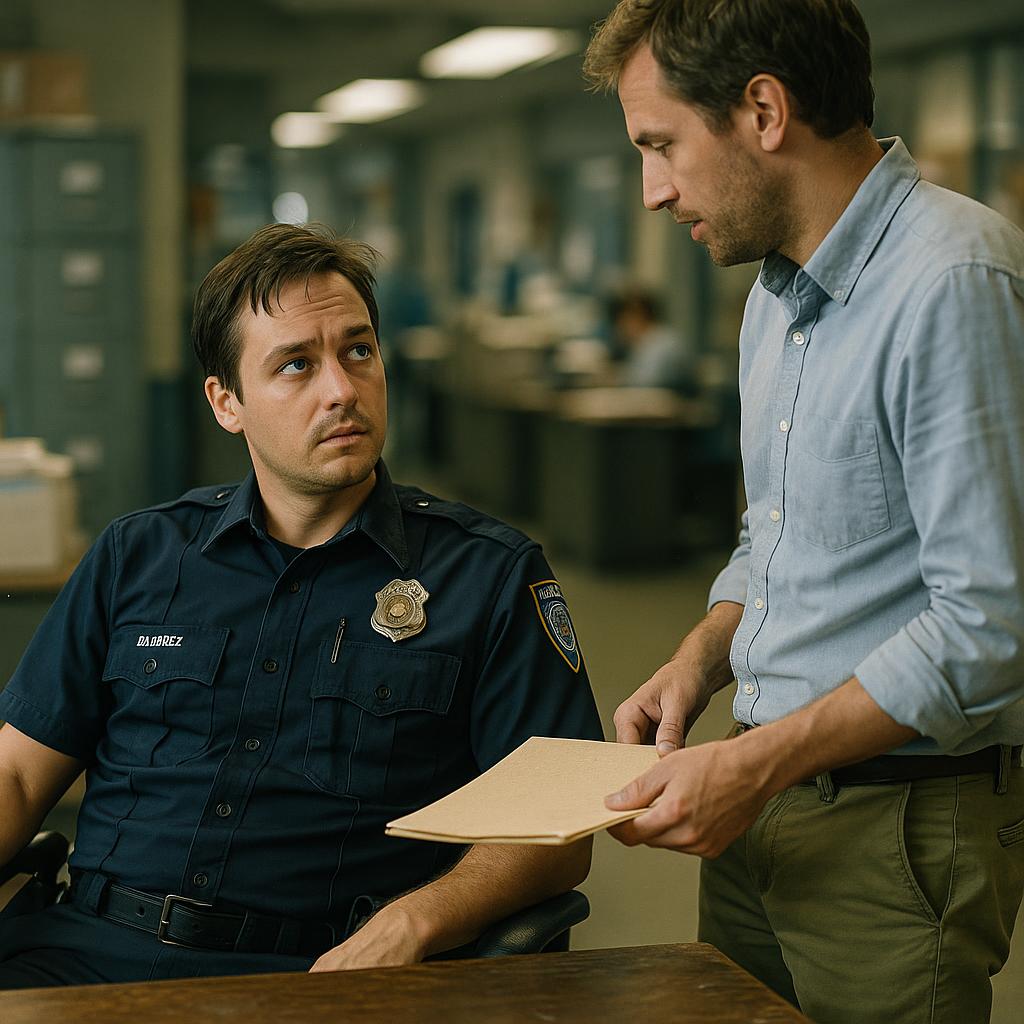 Image by RM AI
Image by RM AI
The Unexpected Ally
I was sitting in my car, still fuming about Officer Ramirez's dismissive attitude, when my phone rang with an unknown number. I almost ignored it, assuming it was another spam call about my car's extended warranty. 'Hello?' I answered cautiously. 'Is this the person from the news? About the parking notes?' The woman's voice was hesitant but determined. She introduced herself as Barbara Hoffman—Gerald's ex-wife. My heart skipped. 'I recognized his handwriting immediately,' she continued. 'I lived with those angry scribbles for twenty-seven years.' Barbara explained that Gerald's behavior had become increasingly erratic after their divorce three years ago. 'He was always opinionated, but after he retired and we split up, something... changed. He started seeing enemies everywhere.' She paused, her voice softening. 'I'm worried about him, honestly. This isn't normal, even for Gerald.' When I asked why she was reaching out, her answer surprised me. 'Because I think I can help you understand what's driving him. And maybe—' her voice cracked slightly, '—maybe we can stop him before he does something worse than leaving notes.' What Barbara told me next about Gerald's connection to a local political group made everything suddenly, terrifyingly clear.
 Image by RM AI
Image by RM AI
Coffee with Barbara
I met Barbara at a small coffee shop fifteen miles from Gerald's usual territory—a quaint place with mismatched mugs and no surveillance cameras. She looked nothing like I'd imagined Gerald's ex-wife: elegant, composed, with kind eyes that crinkled when she attempted a smile. 'Gerald wasn't always like this,' she said, stirring her latte absently. 'The postal service forced him into early retirement three years ago after he got into heated political arguments with colleagues. One almost turned physical.' She pulled out her phone and showed me a series of increasingly disturbing texts. 'After that, it was like something broke in him. First, it was reporting neighbors for grass being half an inch too tall. Then monitoring trash can placement. Now this...' Her voice trailed off as she scrolled to a message that made my stomach clench: 'Someone has to take back control of this community from these people. If no one else will enforce the rules, I will.' Barbara's eyes met mine. 'I'm afraid the notes are just the beginning. Last week, he joined a group called Citizens for Community Standards. They're known for more than just leaving notes.'
 Image by RM AI
Image by RM AI
The Bigger Picture
Barbara slid her phone across the table, showing me a Facebook group page that made my blood run cold. 'The Community Standards Coalition,' she explained, her voice barely above a whisper. 'It's not just Gerald. There are fifteen of them—all retirees with too much time and too many grievances.' I scrolled through posts showing coordinated 'patrols' of neighborhoods, complete with schedules and target areas. What had started as legitimate community concerns about actual code violations had morphed into something sinister. They were specifically targeting homes and vehicles with progressive bumper stickers, pride flags, or yard signs supporting causes they disagreed with. 'They have a point system,' Barbara continued, pointing to a spreadsheet someone had posted. 'Ten points for catching someone with grass over regulation height, twenty for improper trash can placement, fifty for "inappropriate" yard decorations.' She looked up at me, her eyes filled with worry. 'Gerald's the top scorer this month. They're turning harassment into a game.' As I handed back her phone, a notification popped up—a new post in the group from someone named RuleKeeper57: 'Vigilante Hunters group getting too close. Time to implement Phase Two.'
 Image by RM AI
Image by RM AI
The Infiltration Plan
"I think I can get you into their group," Barbara said, her voice dropping to a whisper even though we were alone in the coffee shop. She explained that Gerald had used her computer months ago and never logged out of Facebook. "He thinks I'm too technologically challenged to notice." Maya and I exchanged glances, the ethical dilemma hanging between us like a storm cloud. "This feels... invasive," I admitted, stirring my now-cold coffee. "More invasive than targeting people based on their political beliefs?" Maya countered. She had a point. The harassment had escalated beyond petty notes—this was organized intimidation. After debating for nearly an hour, weighing moral questions against practical concerns, we made our decision. "Tomorrow afternoon," Barbara said, writing her address on a napkin. "Come to my house. We'll document everything—member names, their 'patrol schedules,' this point system." As I drove home, my stomach knotted with equal parts determination and dread. We were about to cross a line, becoming infiltrators ourselves. But as I stopped at a red light, I noticed a car with progressive bumper stickers had been plastered with not one but five neon green notes. The driver, an elderly woman, was trying to remove them with shaking hands, looking around nervously as if expecting her tormentor to reappear. That's when I knew—sometimes you have to bend the rules to stop those who've broken them entirely.
 Image by RM AI
Image by RM AI
The Secret Group
Barbara's living room felt like mission control as we huddled around her laptop. "He never logs out of anything," she muttered, navigating to Facebook with practiced ease. When the Community Standards Coalition page loaded, my jaw literally dropped. This wasn't just Gerald's pet project—it was a full-blown movement with over 200 members spanning three counties. "Oh my God," Maya whispered, leaning closer to the screen. We scrolled through post after disturbing post: photos of "violators" with addresses and license plates barely blurred out, detailed patrol schedules organized by zip code, and something called "target metrics" that made my skin crawl. "Look at this," I said, pointing to a coded message about "Type-P houses"—which, according to their glossary, meant properties with progressive political signs. They even had a point system for different "infractions," with bonus points for catching people of certain "demographics." Barbara's face had gone pale. "I knew Gerald had gotten extreme, but this..." she trailed off, clicking through to a document titled "Phase Two Implementation." The file was password protected, but the preview showed just enough to make my blood run cold—a list of names. And my name was third from the top.
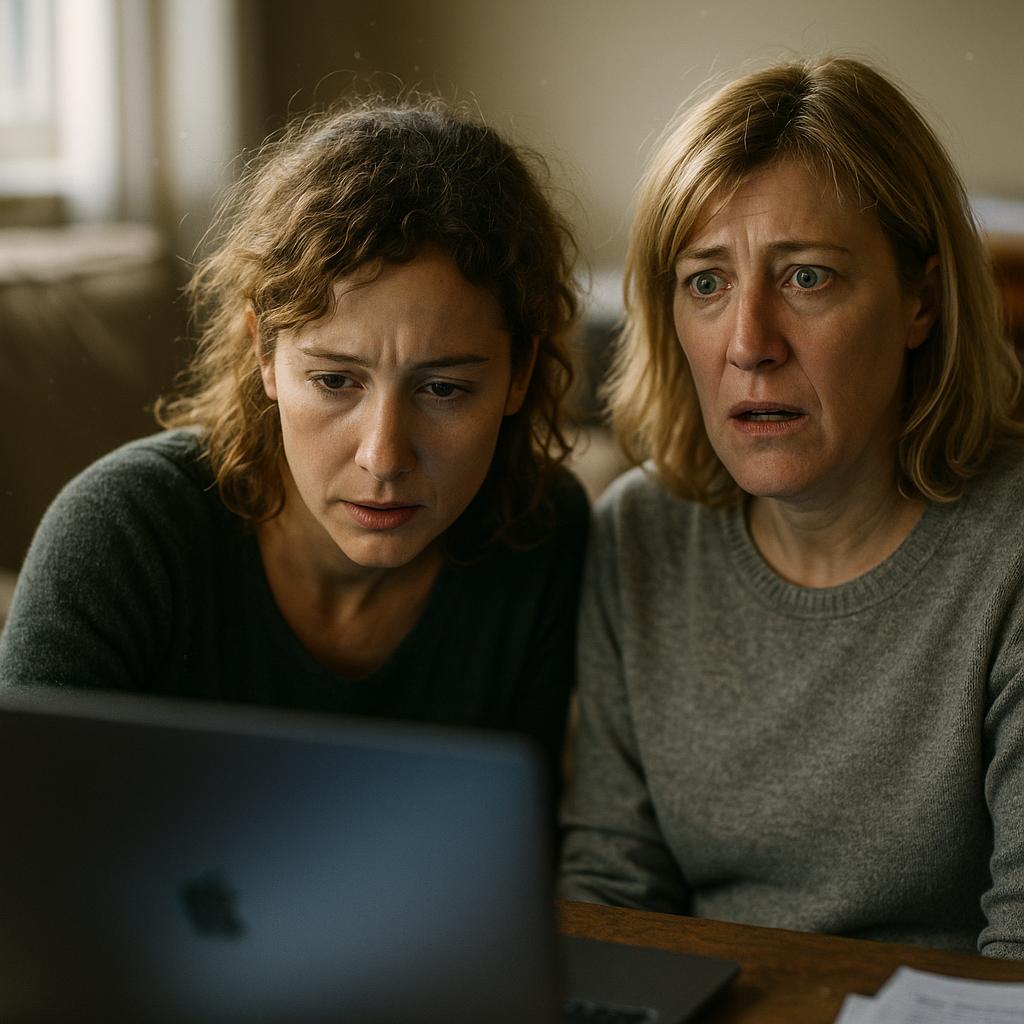 Image by RM AI
Image by RM AI
The Ringleader
As we dug deeper into the Community Standards Coalition's page, one name kept appearing as the authority figure: Walter Prescott. A retired police officer with a profile picture showing him in his old uniform, Walter was clearly the puppet master behind this whole operation. 'Look at this,' Maya said, pointing to a pinned post where Walter laid out daily 'assignments' for members, complete with target neighborhoods and specific 'violations' to look for. Barbara nodded grimly. 'Walter runs the homeowners association in Oakwood Estates. He's had that position for fifteen years because nobody wants to challenge him.' I scrolled through Gerald's activity, noticing how he constantly shared photos of his parking notes with captions like 'Another successful enforcement today!' Walter's responses were always the same: 'Excellent work, soldier' or 'Keeping our standards high!' It was disturbing how much Gerald seemed to crave this validation, posting multiple times daily about his 'patrols.' 'Gerald's trying to climb the ranks,' Barbara explained, her voice tinged with sadness. 'Walter promotes the most active members to what he calls his "Executive Enforcement Team."' I felt a chill run down my spine when I clicked on Walter's personal page and saw a recent post: 'Time to deal with those interfering with our community mission. I have a plan.'
 Image by RM AI
Image by RM AI
The Evidence Collection
For the next three hours, Barbara, Maya, and I became digital detectives, meticulously documenting every disturbing detail from the Community Standards Coalition. My fingers cramped as I took screenshots of their patrol maps—color-coded by neighborhood with little pins marking 'repeat offenders.' Barbara explained how Walter and Gerald had once been poker buddies with her ex-husband, who eventually distanced himself when their 'community concerns' started sounding more like targeted harassment. "He said they were becoming obsessed," she whispered, scrolling through a particularly disturbing thread about monitoring a local professor's house. We were organizing our evidence into folders when Barbara's phone rang, the sudden noise making us all jump. Her face went pale as she answered. "Yes, Gerald, I'm home," she said, her voice impressively steady despite the panic in her eyes. She muted the call and whispered urgently, "He's coming over to get tools from my garage. Says he'll be here in fifteen minutes." Maya and I exchanged horrified glances—we were sitting in Barbara's living room surrounded by printouts of Gerald's own incriminating posts, with his ex-wife's laptop open to a Facebook page he had no idea we could access.
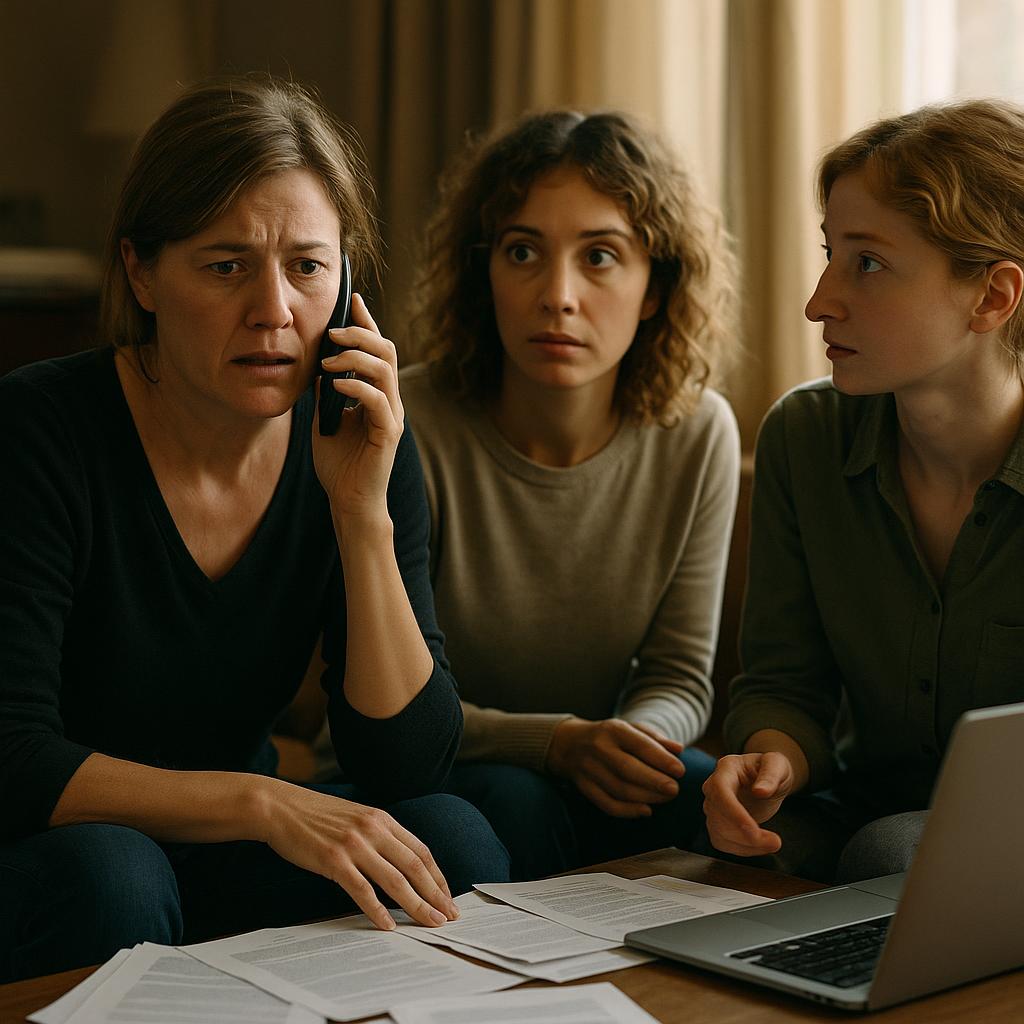 Image by RM AI
Image by RM AI
The Close Call
Panic mode activated. We scrambled like we were in some heist movie, Barbara frantically logging out of Gerald's account while Maya and I gathered printouts, stuffing them into my backpack. 'He's turning onto Maple now,' Barbara whispered, still on the phone with Gerald, her acting skills deserving an Oscar as she casually asked about his day. We slipped out her back door like teenagers breaking curfew, ducking behind the azalea bushes just as Gerald's truck rumbled into the driveway. From our hiding spot, we watched him march up to Barbara's front door, toolbox in hand, completely oblivious to the fact that we'd just uncovered his disturbing extracurricular activities. My heart was pounding so hard I was sure he could hear it from across the yard. Later that evening, Barbara texted: 'He noticed the laptop was warm and asked if I'd been using it. Told him I was looking up gardening tips. He seemed suspicious but dropped it.' I stared at her message, relief washing over me—we'd dodged a bullet. But as I organized our evidence that night, a new email notification popped up: 'Phase Two begins tomorrow. All targets have been identified.'
 Image by RM AI
Image by RM AI
The Legal Consultation
The next morning, Maya texted me: 'My cousin Elise can see us at 2. She's a civil rights attorney.' Three hours later, we sat in Elise's downtown office, surrounded by law books and framed diplomas that made me feel simultaneously intimidated and hopeful. Elise, with her sharp blazer and sharper eyes, reviewed our evidence with methodical precision, occasionally muttering phrases like 'pattern of behavior' and 'targeted harassment.' When she finally looked up, her expression was serious but energized. 'What you've uncovered isn't just petty vigilantism,' she explained, tapping our spreadsheet of targeted vehicles. 'This is organized harassment with clear bias patterns. The individual notes might seem harmless, but collectively, they show discrimination based on perceived political affiliation.' She advised against returning to Officer Ramirez. 'Local PD might have connections to Walter—former cops protect their own. We need to take this directly to the district attorney's office.' As she organized our evidence into a legal folder, Elise paused. 'One more thing,' she said, her voice dropping. 'These people know who you are now. From this point forward, you need to be extremely careful about where you go and who you trust.'
 Image by RM AI
Image by RM AI
The District Attorney
Assistant District Attorney Sarah Chen's office was intimidatingly pristine, with law books arranged by color and framed commendations that made our evidence folder look shabby by comparison. She reviewed our materials with laser focus, occasionally jotting notes in perfect handwriting. 'This is... concerning,' she finally said, removing her glasses. 'The pattern of targeting specific demographics and political expressions could constitute civil rights violations.' When I mentioned Walter's former police status, her expression tightened. 'That complicates things. The blue wall is real, even for former officers.' She tapped our spreadsheet showing the disproportionate targeting of minorities and progressive bumper stickers. 'This helps. Bias patterns are what we need.' Chen was refreshingly straightforward, neither dismissing us like Ramirez nor making empty promises. 'I'll open a preliminary investigation, but I need you to understand something,' she leaned forward, her voice dropping. 'Walter Prescott has connections throughout this county. If he gets wind that the DA's office is looking into him, things could escalate quickly. Are you prepared for that?' The way she asked made my stomach knot—it wasn't just a question, it was a warning.
 Image by RM AI
Image by RM AI
The Backlash Begins
I woke up to the sound of my phone buzzing frantically on my nightstand. It was Maya, her voice trembling with panic. 'They know. They KNOW about us.' Before I could process what she meant, she explained that someone had created a fake dating profile using her full name and workplace information, filled with explicit content that had already reached her boss. My stomach dropped as I remembered ADA Chen's warning. Still holding the phone, I walked to my front window and froze. My car sat in the driveway like a wounded animal—all four tires slashed, rubber hanging in sad, defeated flaps. Tucked under my windshield wiper was that all-too-familiar neon green paper. With shaking hands, I retrieved it: 'Mind your own business.' Three words that carried the weight of a thousand threats. I called the police immediately, but as I waited, watching the neighborhood through my blinds, I couldn't shake the feeling of being watched. The Community Standards Coalition wasn't just some group of bored retirees anymore—they were organized, connected, and now, they were dangerous. What terrified me most wasn't the property damage or even the intimidation tactics—it was how quickly they'd identified us after our meeting with the DA's office. Someone with serious connections was feeding them information, and I had a sinking feeling I knew exactly who it might be.
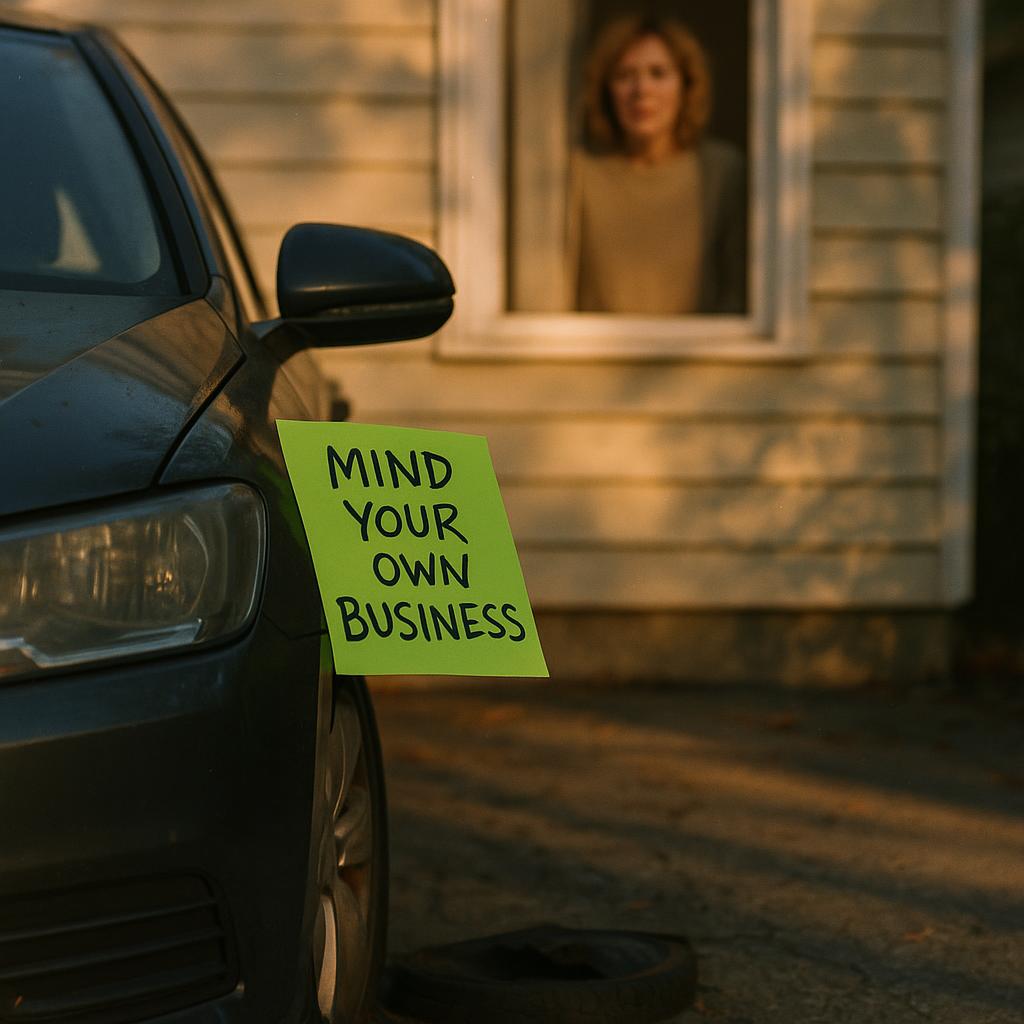 Image by RM AI
Image by RM AI
The Security Measures
The morning after finding my tires slashed, I went on a security shopping spree that would've made a doomsday prepper proud. Four outdoor cameras, motion-sensor lights, and a doorbell camera that could probably spot a squirrel from three blocks away. 'You're turning your house into Fort Knox,' Maya commented as she packed an overnight bag. She'd decided to stay with her sister after receiving threatening texts from unknown numbers. 'Better safe than sorry,' I replied, testing the new app that would alert me to any movement outside. Barbara called while I was mounting the final camera. 'Gerald's been having late-night meetings with Walter,' she whispered, tension evident in her voice. 'He comes home all worked up, muttering about "taking back the community" and "teaching lessons." I don't like it.' I immediately reported everything to ADA Chen, who assigned Detective Morales to drive by our homes regularly. 'Document everything,' she emphasized during our call. 'Even if it seems insignificant—a car driving by too slowly, a stranger taking photos, anything unusual.' That night, as I triple-checked my locks before bed, my security app pinged. Someone in a baseball cap was walking slowly past my house, stopping briefly to look directly at my front door. The timestamp read 2:17 AM.
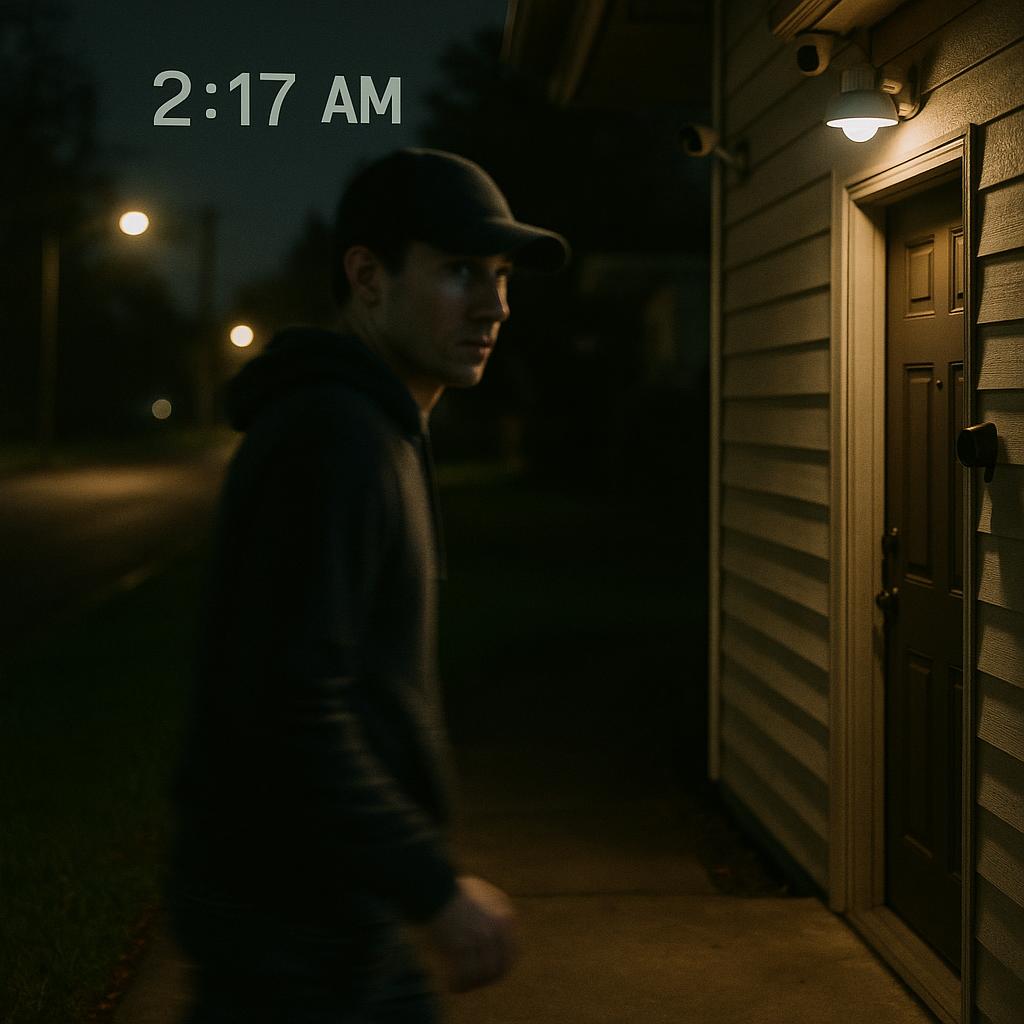 Image by RM AI
Image by RM AI
The Community Meeting
Channel 7 News ran a follow-up story about the 'Parking Police' last night, and suddenly everyone was talking about it. The mayor, probably sensing a PR opportunity, called for a community meeting at the high school auditorium. I arrived twenty minutes early and still barely found a seat—the place was packed like a Black Friday sale. One by one, residents approached the microphone, sharing stories that made my skin crawl. 'It wasn't just parking,' a woman in her sixties explained, her voice shaking. 'They left notes about my Christmas decorations being "excessive" and "culturally insensitive."' A young dad described finding threatening messages about his children's bikes being left in the front yard. 'They took pictures of my kids playing,' he said, his voice breaking. That's when I noticed them—Walter, Gerald, and about five other men from their Facebook group, sitting in the back row like vultures. They weren't speaking, just watching, scribbling in notebooks. Walter caught my eye and smiled—not a friendly smile, but the kind that says 'I know what you did.' I quickly looked away, but not before noticing Gerald taking a photo of me with his phone.
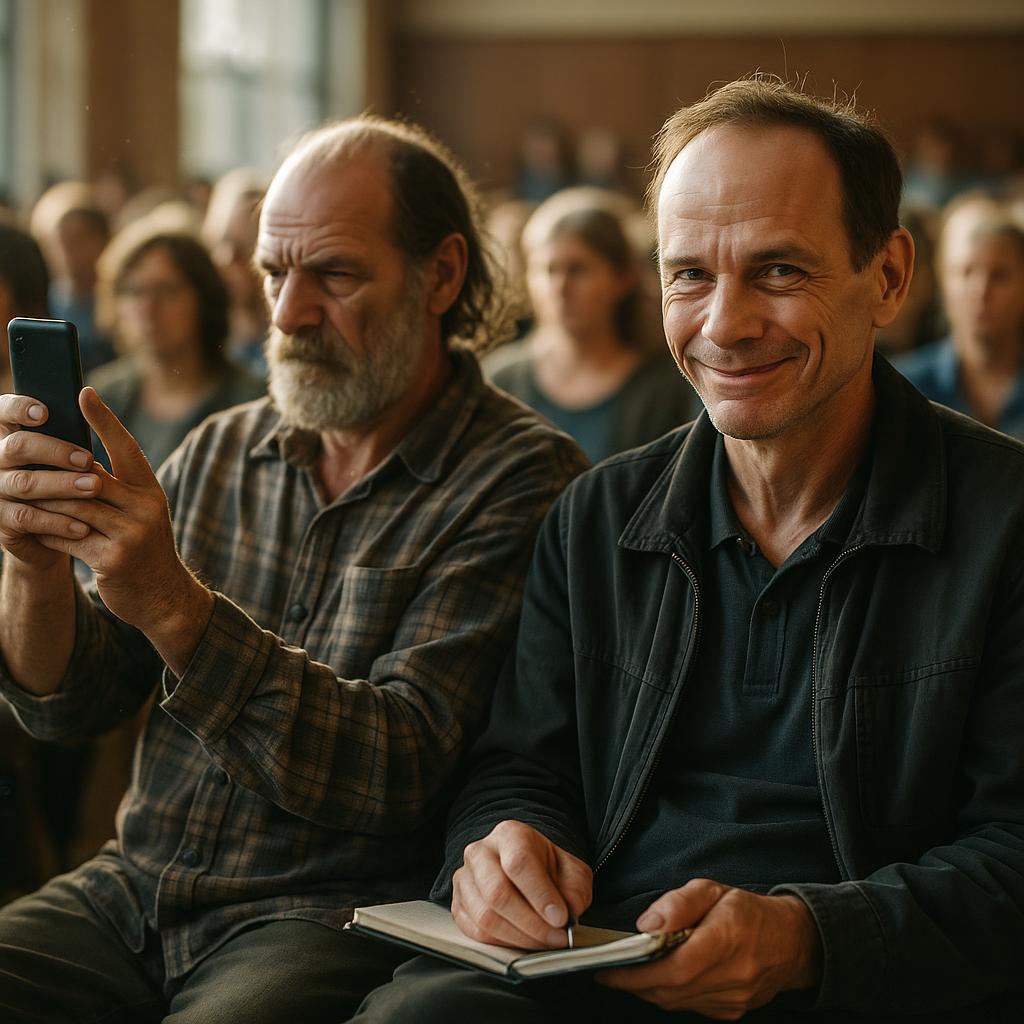 Image by RM AI
Image by RM AI
The Public Confrontation
My heart was pounding as I approached the microphone, clutching my phone with the dashcam footage queued up. 'I'd like to show everyone something,' I announced, my voice shakier than I'd hoped. The tech volunteer connected my phone to the projector, and suddenly the parking lot scene was displayed ten feet tall for everyone to see. The room fell completely silent as they watched Gerald methodically placing notes on perfectly parked cars while deliberately ignoring actual violations. When the footage showed his homemade 'Parking Enforcement Volunteers of America' sign, someone in the audience actually gasped. 'This man is part of a group called the Community Standards Coalition,' I explained, my confidence growing with each word. 'They systematically target certain people based on—' I didn't get to finish. Walter shot up from his seat, his face crimson. 'This is defamation!' he bellowed, pointing a trembling finger at me. 'You'll be hearing from my attorney!' He stormed toward the exit, Gerald and their cronies following like obedient soldiers. As the door slammed behind them, the room erupted in whispers. The mayor looked stunned, but ADA Chen, sitting in the back row, gave me a subtle nod that said everything: the trap had been set, and they'd walked right into it.
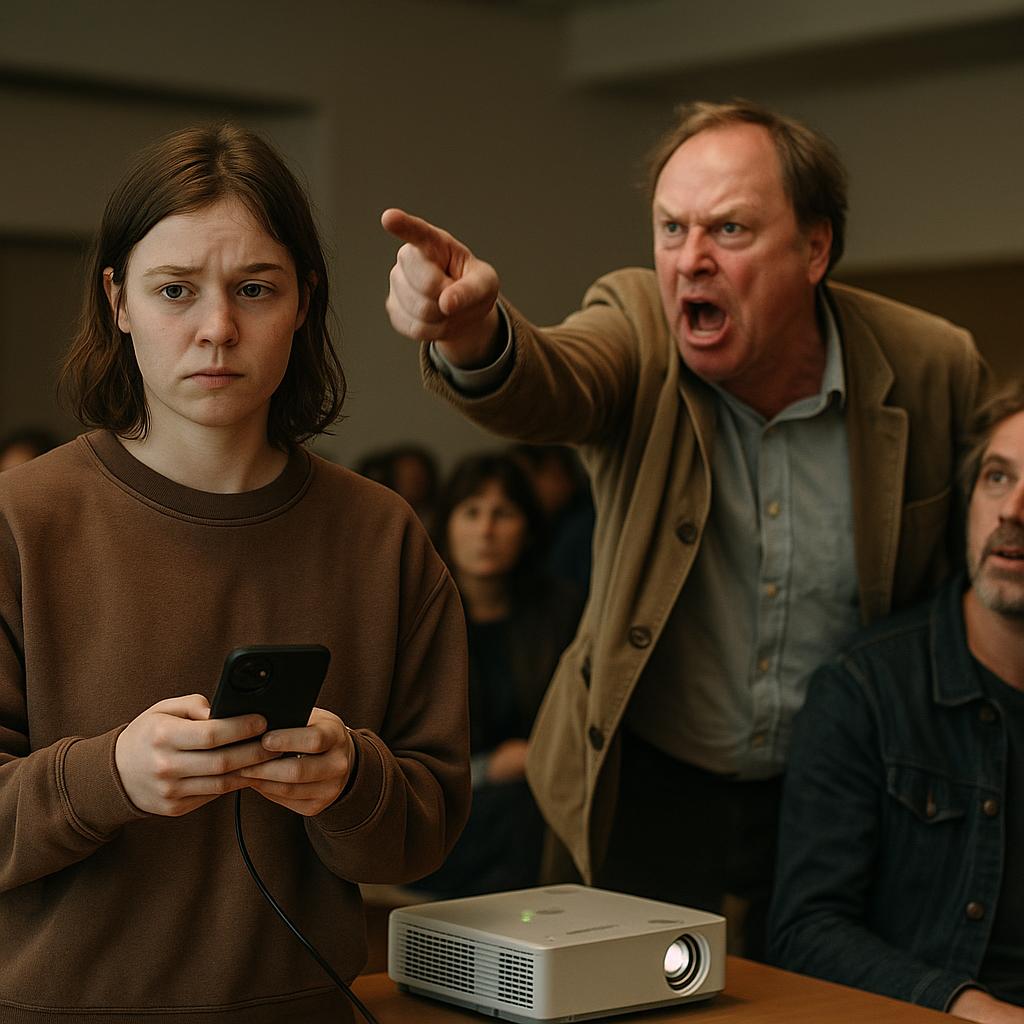 Image by RM AI
Image by RM AI
The Unexpected Support
The moment the meeting ended, I was surrounded by people eager to share their own Walter Prescott horror stories. An elderly woman with trembling hands pulled me aside, unzipping a plastic folder containing dozens of neon green notes. "Started after I put up a sign for Senator Mitchell," she explained, her voice barely above a whisper. "They photographed my grandchildren playing in my yard." A young Latino couple, the Ramirezs, showed me pictures of their mailbox—smashed beyond recognition just days after moving into Walter's neighborhood. "The police said it was probably teenagers," Mr. Ramirez said bitterly, "but our security camera caught a man in a baseball cap." By the time the crowd thinned, I had collected business cards, phone numbers, and enough evidence to fill another folder. The mayor approached, his political smile replaced with something that looked almost like genuine concern. "I've already spoken with ADA Chen," he assured me, lowering his voice. "This stops now." As I walked to my car, my phone buzzed with a text from an unknown number: "Thank you for being brave. I have something you need to see. I used to be one of them."
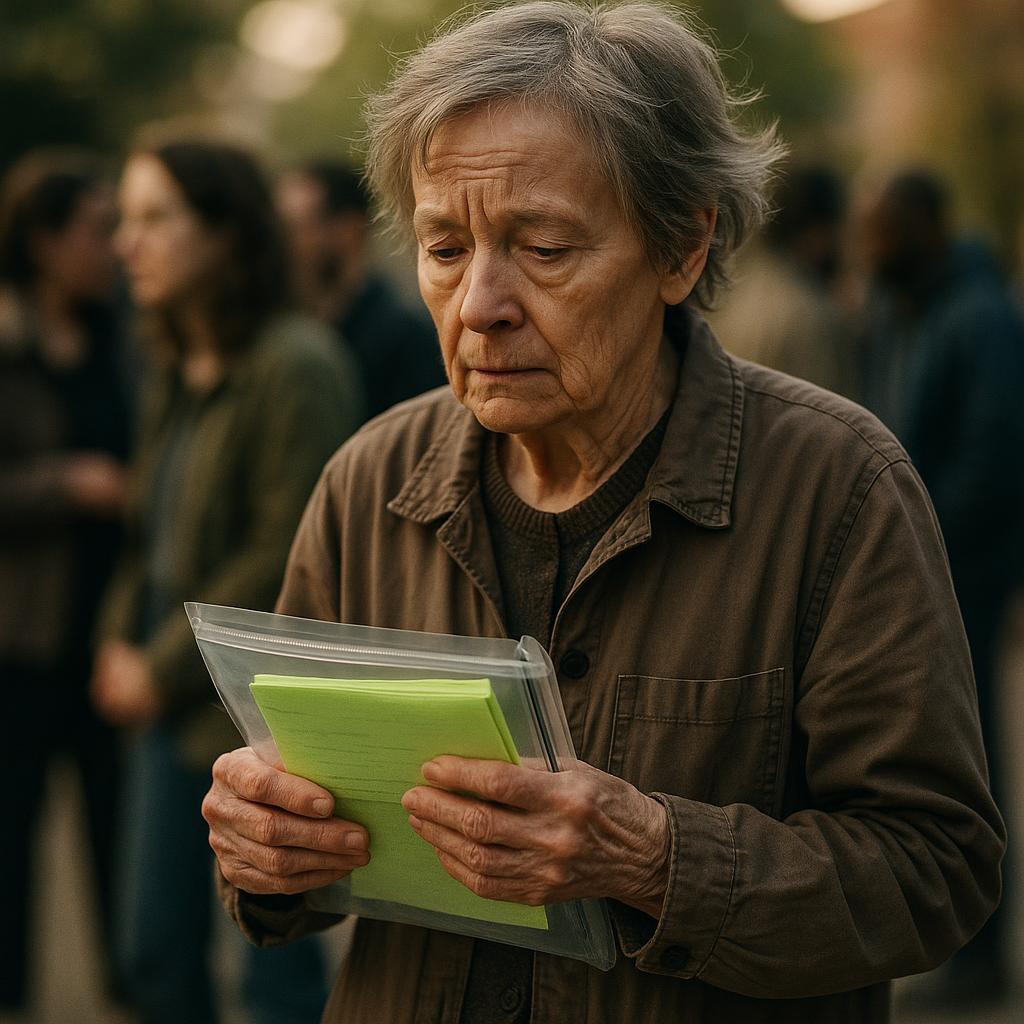 Image by RM AI
Image by RM AI
The Threatening Letter
The certified letter arrived with all the subtlety of a bomb threat—heavy cream-colored envelope, official red stamp, requiring my signature. My hands actually trembled as I tore it open. 'CEASE AND DESIST,' screamed the letterhead from 'Blackwell & Associates, Attorneys at Law.' Walter wasn't wasting any time. The letter claimed my 'defamatory statements' at the community meeting had caused 'irreparable harm' to Walter's reputation and demanded I publicly retract everything, disband our Facebook group, and remove all social media posts about the 'Community Standards Coalition.' According to his lawyer, Walter was just a concerned citizen performing 'legitimate community service.' I nearly choked on my coffee reading that part. I immediately forwarded a scan to Elena, Maya's attorney cousin. Her response came within the hour: 'This is 90% intimidation, 10% legal garbage. They're hoping you'll be scared enough to back down. Don't delete ANYTHING—in fact, this letter is now evidence.' She explained that truth is an absolute defense against defamation, and we had mountains of evidence. Still, seeing my name on that threatening legal document made everything suddenly feel very real—and very dangerous. Walter wasn't just some neighborhood busybody anymore; he was a man with resources who would stop at nothing to silence me.
 Image by RM AI
Image by RM AI
The Counter-Strategy
Elena's advice was clear: 'The best defense is a good offense.' Instead of cowering under Walter's legal threats, we decided to expand our coalition. I reserved the community center for what we called a 'Documentation Workshop,' where people could learn to protect themselves against harassment. I expected maybe twenty people—we got over fifty. Barbara was our secret weapon, sharing insider knowledge about Walter and Gerald's tactics with clinical precision. 'They target on Tuesdays and Thursdays most often,' she explained, 'and they keep detailed records of what they consider violations.' We distributed dashcams at wholesale prices (Maya's brother works at an electronics store), taught everyone how to properly timestamp photos, and created a secure online portal for submitting evidence. The energy in the room was electric—people who'd felt isolated in their harassment suddenly finding community. When a reporter from the Westside Chronicle showed up, I nearly panicked, but Elena whispered, 'This is perfect—publicity is protection.' The next morning, we made front page local news: 'Residents Unite Against Self-Appointed Neighborhood Police.' What none of us expected was the phone call I received that afternoon from Officer Ramirez, his voice uncharacteristically urgent: 'You need to be careful. Walter just filed a restraining order against you—and he's got friends in the department looking for any reason to enforce it.'
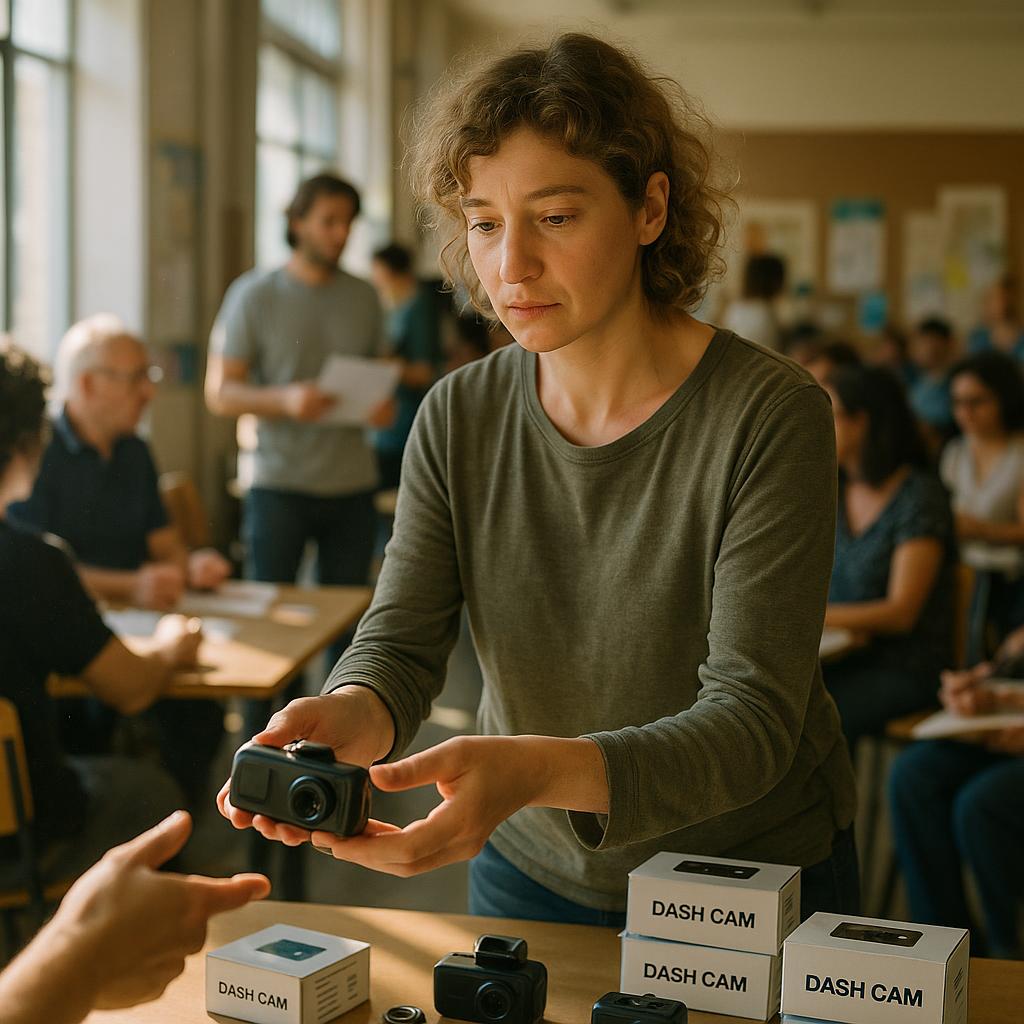 Image by RM AI
Image by RM AI
The Whistleblower
I was packing up my materials after the workshop when a man approached me, nervously glancing over his shoulder. 'I need to talk to you,' he whispered. 'Not here.' We met at a coffee shop two blocks away, where he introduced himself as Tom, a former member of Walter's inner circle. 'I left when things got... dark,' he explained, his hands trembling slightly as he slid his phone across the table. 'Walter keeps files on everyone he considers "problematic"—detailed notes, schedules, family information.' I scrolled through screenshots of private messages that made my blood run cold. Walter wasn't just some cranky retiree with too much time—he was running a coordinated harassment campaign. 'They have weekly meetings to assign targets,' Tom continued. 'They call it "community correction." There's a point system for successful intimidations.' When I asked why he was coming forward now, Tom's eyes darted to the door before answering. 'Last meeting, Walter showed up with a gun. Said it was time to "escalate protection measures." That's when I knew I had to get out.' As he left, Tom handed me a USB drive. 'Everything's on here—meeting notes, target lists, the whole operation. But be careful—if Walter finds out I gave you this, I'm as good as dead.'
 Image by RM AI
Image by RM AI
The Hidden Files
Tom's hands shook as he unlocked his front door, checking the street one last time before ushering me inside. 'Welcome to the rabbit hole,' he said grimly, leading me to a spare bedroom he'd converted into what looked like a conspiracy theorist's dream office. But this was no conspiracy—it was methodical documentation. Spread across three cork boards were what Tom called 'target profiles'—detailed dossiers on neighbors complete with work schedules, family photos, and notes on their 'violations.' 'Walter calls this his compliance system,' Tom explained, opening his laptop to show me spreadsheets tracking harassment escalation tactics. 'First the notes, then property damage, then...' he trailed off, pointing to a folder labeled 'Phase 3.' What made my blood run cold was the community map hanging above his desk. Houses were color-coded—red for 'liberal threats,' yellow for 'ethnic concerns,' green for 'compliant.' My house was circled in bright red with a star beside it. 'The star means priority target,' Tom said quietly. 'Walter updates this map weekly during leadership meetings.' I stared at the meticulous documentation of what could only be described as organized terrorism disguised as neighborhood watch. 'There's something else you need to see,' Tom said, pulling out a final folder. 'This is why I really left the group.'
 Image by RM AI
Image by RM AI
The Breaking Point
Tom's face grew pale as he pulled out a folder labeled 'Enforcement Protocols.' 'This is why I couldn't stay silent anymore,' he said, voice barely above a whisper. 'Walter wanted us to call CPS on families whose yards weren't up to his standards—actual families with children.' I felt sick as he explained how Walter had compiled a list of residents he suspected were undocumented, planning to report them to ICE based on nothing but racist assumptions. 'When I told him this crossed a line, he got in my face,' Tom continued, unconsciously touching a faded bruise on his forearm. 'Said if I wasn't with them, I was against them.' According to Tom, Walter's behavior had deteriorated dramatically since his forced retirement from the police department—a detail that made perfect sense. 'He didn't leave voluntarily,' Tom explained. 'There were multiple complaints about racial profiling, but his buddies in the department protected him until they couldn't anymore.' Tom's hands trembled as he closed the folder. 'Walter's looking for power he lost, and he's found it by terrorizing people who can't fight back.' What Tom said next made my blood run cold: 'And now that you've publicly challenged him, there's no telling how far he'll go to make an example of you.'
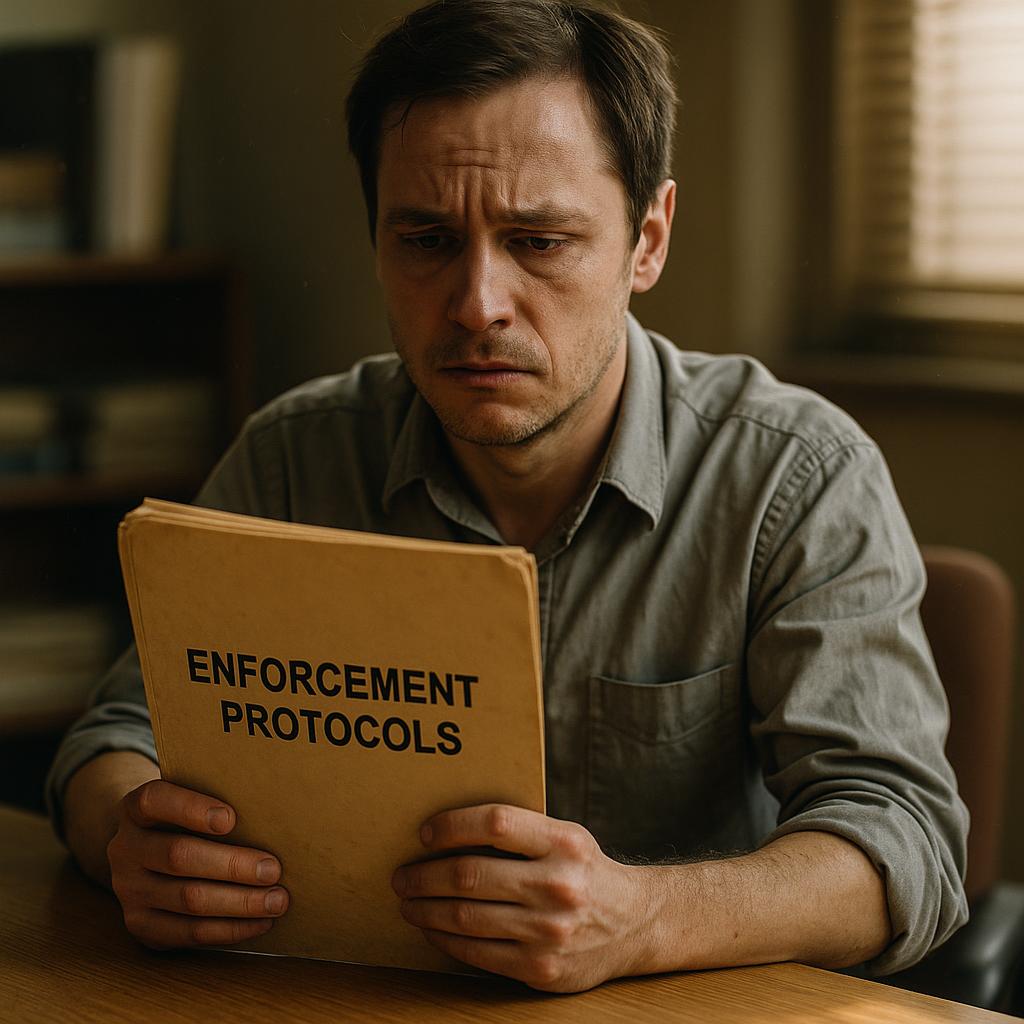 Image by RM AI
Image by RM AI
The Investigation Expands
ADA Chen's face grew increasingly grim as she flipped through Tom's evidence. 'This isn't just some neighborhood busybody gone rogue,' she said, spreading the color-coded maps across her desk. 'This is organized harassment on a scale I've never seen.' I watched as she methodically photographed each document, her usual composed demeanor cracking slightly. 'We've been receiving similar reports from Ridgeview and Oakwood Heights,' she revealed, naming communities about twenty miles from ours. 'The tactics are identical—same note format, same escalation patterns.' She pulled up a digital map on her computer, pointing to red pins scattered across our state. 'Each pin represents a reported incident matching Walter's MO.' There were dozens. 'This isn't isolated,' she continued, her voice hardening. 'We believe Walter's group is connected to a larger network—possibly even receiving training and resources.' She picked up her phone, making a call I never expected: 'This is ADA Chen. I need to speak with the Attorney General's civil rights division immediately.' After hanging up, she fixed me with an intense stare. 'What started as parking notes has just become a state-level investigation. And Walter has no idea what's coming for him.'
 Image by RM AI
Image by RM AI
The Surveillance
I first noticed the white sedan three days after the community meeting—just sitting there, engine off, across from my driveway at 6:30 AM. My new security system pinged my phone with the motion alert, and I watched through my bedroom window as someone inside appeared to lift something to their face. A camera? Binoculars? By the time I threw on clothes and went outside, they were gone. But they came back. Again and again. My cameras caught the same car driving by at 11:43 PM, then 4:15 AM, then parked two houses down during my afternoon Zoom call. I started documenting everything—timestamps, license plate, duration. When I showed Detective Rivera the footage, his expression darkened. 'It's registered to Sentinel Private Investigations,' he confirmed, scrolling through the images on my phone. 'They're frequently hired by ex-cops.' He explained that while surveillance itself wasn't technically illegal, the pattern suggested intimidation. 'Document everything, but don't engage,' he warned, handing me his personal cell number. 'These guys know exactly how far they can push before crossing legal lines.' That night, as I double-checked my locks, my doorbell camera pinged. The white sedan was back—but this time, someone was walking up my driveway.
 Image by RM AI
Image by RM AI
The Unexpected Visitor
The harsh chime of my doorbell cut through the silence at 11:37 PM, sending my heart into my throat. I grabbed my phone, opened the security app, and felt my stomach drop—Gerald was standing on my porch, shifting nervously from foot to foot, looking over his shoulder like a man being hunted. Every instinct screamed 'don't answer,' but curiosity won out. I hit record on my phone, slipped it into my pocket, and cracked open the door with the chain still on. 'What do you want?' I demanded. Gerald's face was ashen, his usual smug confidence replaced with something I'd never seen before—fear. 'Please,' he whispered, 'I need to talk to you. Somewhere Walter can't hear us.' Against my better judgment, I let him in. 'The parking notes,' he confessed, perched anxiously on the edge of my couch, 'that was my idea originally. Just a stupid prank to feel important.' His voice cracked. 'But Walter... he turned it into something else. Something I never wanted any part of.' Gerald's hands trembled as he reached into his jacket. 'You need to see what he's planning next. And why I can't be part of it anymore.'
 Image by RM AI
Image by RM AI
The Confession
Gerald's hands trembled as he placed his coffee mug down, the liquid sloshing dangerously close to the rim. 'After my wife left and I retired, I was... lost,' he confessed, his voice barely above a whisper. 'Walter found me at the community garden. Said I could make a difference.' He explained how their 'standards coalition' had started with legitimate concerns—abandoned properties, safety issues—but Walter gradually shifted their focus to targeting specific neighbors. 'He has files on everyone who disagrees with him,' Gerald continued, eyes darting nervously toward my windows. 'Even on us. Insurance.' When I asked what he meant, Gerald's face crumpled. 'Walter knows things. About all of us. My gambling debts. Tom's DUI. Barbara's estranged daughter.' He wiped his eyes with a trembling hand. 'Last week, I questioned why we were only targeting the Ramirez family when the Andersons' yard was worse. Walter showed me a folder with my name on it and said, "Remember who your real friends are."' Gerald leaned forward, desperation etched across his face. 'I'll testify. Tell them everything. But you have to help me. Walter has a gun now, and he's not afraid to remind us about it.'
 Image by RM AI
Image by RM AI
The Turning Point
I arranged a meeting between Gerald, ADA Chen, and Detective Rivera at a small conference room in the courthouse—neutral ground where Walter wouldn't think to look. Chen's skepticism was written all over her face as Gerald nervously fidgeted with his coffee cup. "So you're telling us you were just an innocent bystander in all this?" she asked, her tone making it clear she wasn't buying it. But as Gerald detailed Walter's operation—the targeting criteria, the escalation protocols, the weekly meetings—I watched her expression shift from doubt to concern. "He keeps everything," Gerald explained, his voice cracking. "Every note, every target, every 'success story'—all documented in his home office. Color-coded binders going back three years." Detective Rivera leaned forward. "That would be enough for a warrant." Chen nodded slowly, explaining to Gerald that while they couldn't promise immunity, his cooperation would "significantly impact" how the DA viewed his involvement. Gerald stared at his hands for a long moment before looking up. "I'll wear a wire," he said quietly. "The next meeting is Thursday night." As we left the courthouse, Chen pulled me aside. "If he's telling the truth," she whispered, "this isn't just harassment anymore—it's criminal conspiracy." What none of us realized was that Walter had already suspected Gerald's betrayal and had set a trap of his own.
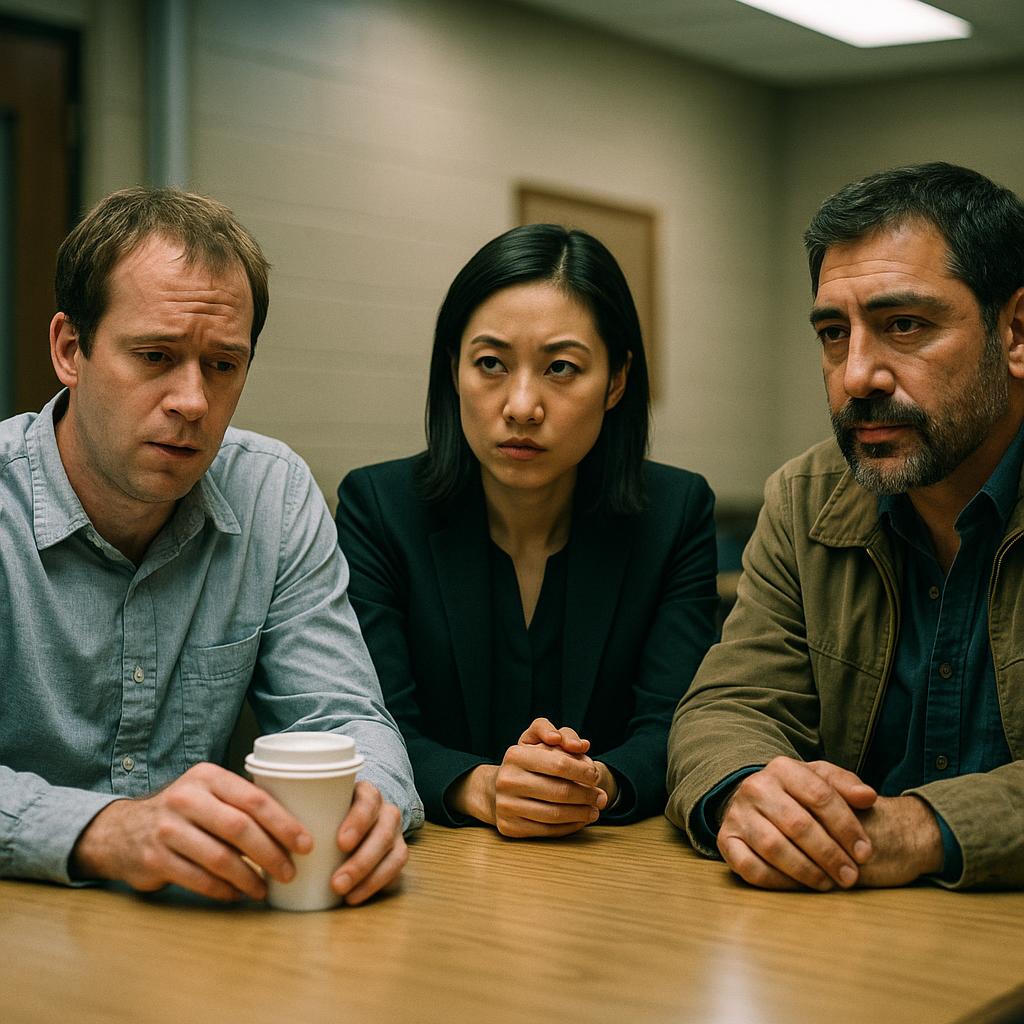 Image by RM AI
Image by RM AI
The Undercover Operation
The police station's fluorescent lights made everything feel surreal as Maya and I waited for Gerald to return from his undercover mission. Detective Rivera had spent an hour wiring Gerald up, testing the audio, and coaching him on what questions to ask. 'Just act natural,' he'd said, adjusting the tiny microphone hidden in Gerald's shirt button. 'Let Walter do most of the talking.' That was four hours ago. Now, every time the station door opened, my heart jumped into my throat. Maya squeezed my hand as Rivera paced, occasionally pressing his earpiece deeper as if that would somehow improve the signal. 'He should have checked in by now,' I whispered, watching the clock tick past 10 PM. Rivera's phone suddenly rang, shattering the tense silence. His face darkened as he listened, and I knew immediately something had gone terribly wrong. 'Gerald's been made,' he said grimly, already grabbing his jacket. 'Walter found the wire.' The last thing we heard through the audio feed before it cut out was Walter's chillingly calm voice: 'So you're working with them now. That's disappointing, Gerald. Very disappointing indeed.'
 Image by RM AI
Image by RM AI
The Confrontation
The station erupted into chaos as Rivera barked orders, officers scrambling for tactical gear. I paced anxiously, my stomach in knots as Maya called ADA Chen. Twenty minutes later, I was white-knuckling the dashboard of Rivera's unmarked car as we sped toward Walter's house, blue lights hidden but siren wailing. We arrived to find Gerald backed against a wall, Walter's finger jabbing into his chest while two men—one I recognized as the 'volunteer' from my dashcam footage—flanked him like prison guards. 'You think you can betray us?' Walter was shouting, completely oblivious to our arrival. Rivera and four officers moved with practiced precision, weapons drawn. 'Police! Step away now!' The look on Walter's face when he realized what was happening—that perfect mixture of shock and indignation that comes when someone who's always been the bully suddenly becomes the target—was something I'll never forget. As they cuffed him, Walter kept insisting they had 'no right,' until Rivera played back the recording where Walter explicitly detailed their system for targeting 'undesirables' in the neighborhood. Gerald was shaking but standing taller than I'd ever seen him as officers led him to safety. 'We got him,' Rivera told me, watching as his colleagues secured a warrant over the radio. 'And based on what we heard, we're about to get a lot more.' What none of us expected was what they'd find hidden in Walter's basement.
 Image by RM AI
Image by RM AI
The Evidence Trove
I stood frozen in the doorway of Walter's basement, unable to process what I was seeing. The walls were covered with maps of our neighborhood—houses marked with different colored pins and sticky notes. Red for 'liberal threats,' yellow for 'ethnic concerns,' green for 'compliant.' My house had a bright red pin with multiple notes attached. 'My God,' ADA Chen whispered beside me, snapping photos with her phone. 'This is beyond harassment.' The center table held meticulously organized binders—each labeled by street name and date. Rivera opened one labeled 'Targeting Protocols' and we all fell silent. Inside was a typed manual with sections like 'Identifying Undesirables' and 'Escalation Techniques.' It explicitly instructed members to look for pride flags, political bumper stickers, and even 'ethnic decorations' as indicators of 'problem residents.' Most disturbing were the photographs—hundreds of them—of neighbors going about their daily lives, completely unaware they were being watched. 'We've got him,' Chen said, carefully bagging a binder as evidence. 'Civil rights violations, criminal conspiracy, stalking...' She paused, lifting a folder with my name on it. 'And based on what's in here, I think we're just scratching the surface of what Walter's been planning.'
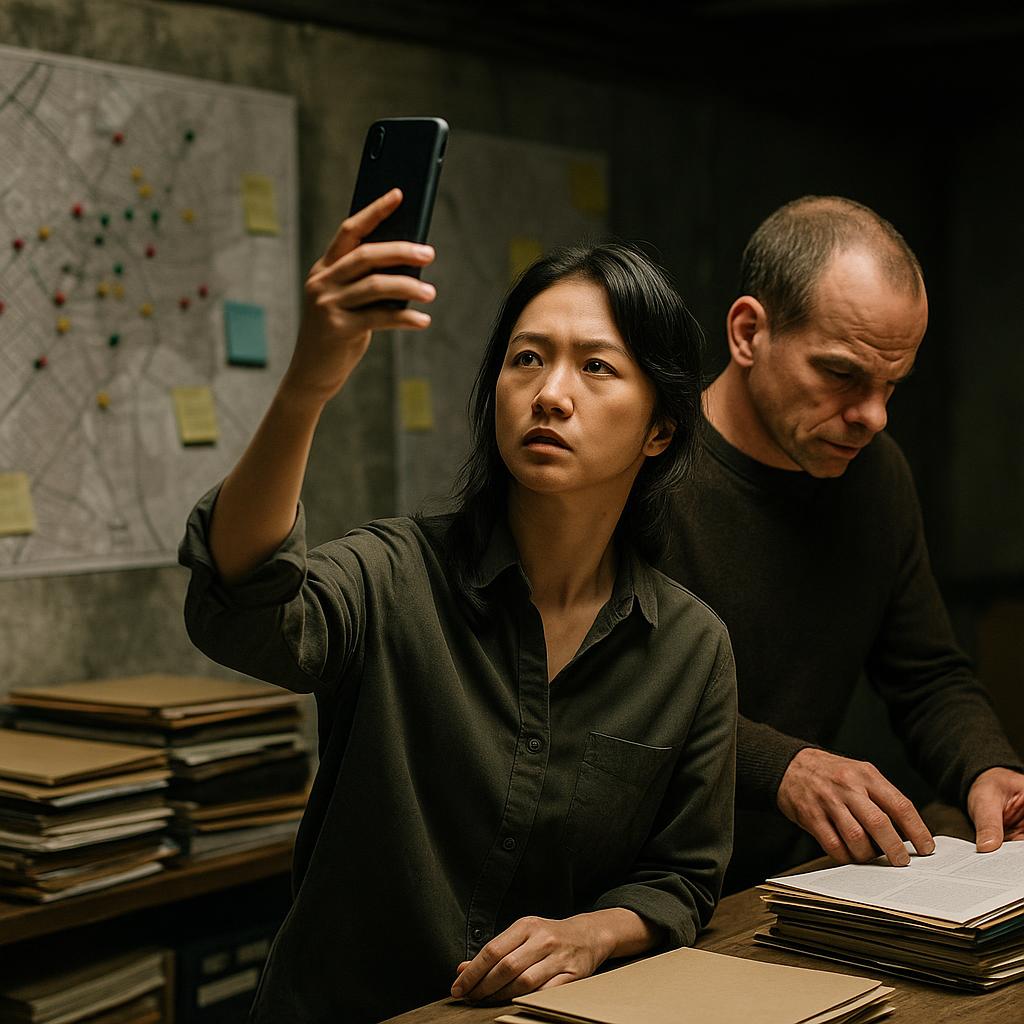 Image by RM AI
Image by RM AI
The Media Storm
I never expected to become the face of a national movement against neighborhood tyranny, but that's exactly what happened after Walter's arrest hit the news. My phone wouldn't stop buzzing with notifications—CNN, Fox News, MSNBC, all wanting 'exclusive interviews with the person who brought down the neighborhood vigilante.' Our Facebook group, once a modest community forum, exploded overnight to over 50,000 members. 'You're trending on Twitter,' Maya texted me with a screenshot of #ParkingNoteGuy and #NeighborhoodWatch trending nationally. What shocked me most were the hundreds of messages flooding my inbox from people across the country sharing nearly identical stories: 'The same thing happened in our HOA in Phoenix,' or 'We have a Walter in Cincinnati too.' The pattern was undeniable and deeply unsettling. I finally agreed to one interview with a morning show, thinking it would end the media frenzy. Instead, it opened the floodgates. 'You've become the reluctant spokesperson for everyone who's ever felt bullied in their own neighborhood,' the host said during our segment. I hadn't asked for this role, but as I scrolled through messages from both retirees and young homeowners thanking me for standing up to Walter, I realized something far more sinister was happening in America's neighborhoods than anyone had realized—and Walter's basement was just the tip of the iceberg.
 Image by RM AI
Image by RM AI
The Wider Network
The FBI agent's presentation made my living room feel suddenly smaller as she clicked through slides on her laptop. 'Walter wasn't operating in isolation,' she explained, pointing to a network map that looked like a sinister spider web connecting dozens of cities across America. 'We found encrypted emails dating back five years.' My stomach dropped as she showed me Walter's correspondence with group leaders in Ohio, Florida, and Texas—all using identical language about 'community standards' and 'quality of life enforcement.' They even shared templates for the harassment notes, complete with psychological tactics designed to maximize fear and compliance. 'They call themselves "The Neighborhood Integrity Alliance,"' the agent continued, her voice tight with controlled anger. 'They specifically target communities in transition—areas with changing demographics or new homeowners.' What chilled me most was the training manual they'd recovered from Walter's encrypted cloud storage: detailed instructions for identifying 'disruptive elements' in neighborhoods, with special attention to immigrants, young families, and anyone with progressive political signs. 'The Attorney General is announcing a multi-state task force tomorrow,' she said, closing her laptop. 'But we need to warn you—Walter wasn't the head of this snake. And his associates know exactly who exposed them.'
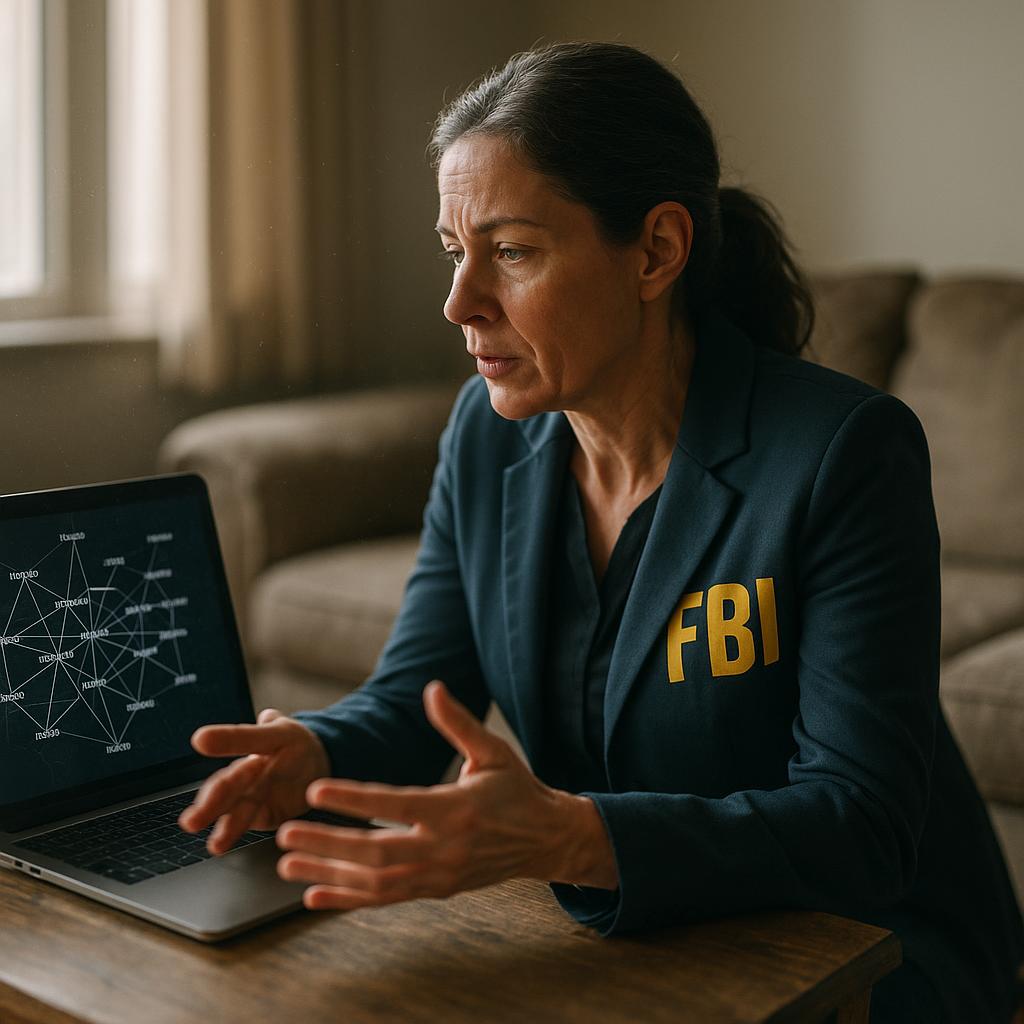 Image by RM AI
Image by RM AI
The Community Healing
The community center buzzed with nervous energy as Mayor Thompson opened the reconciliation forum. 'We're here to heal,' she announced, her voice steady despite the tension in the room. I sat near the back, watching as neighbors who'd barely spoken for months filed in. Gerald's entrance caused a ripple of whispers—some hostile, others curious. When he finally approached the microphone, his hands were shaking. 'I was lonely and Walter made me feel important,' he confessed, voice cracking. 'That's no excuse for what we did.' The silence that followed was deafening until Barbara, whose garden had been repeatedly vandalized, slowly stood up. 'Walter preyed on people who were vulnerable,' she said, her gray hair catching the fluorescent light. 'He offered community to those who needed it most, then weaponized their loneliness.' Her words hit me hard. How many of us had felt that same isolation? By meeting's end, we'd formed a committee for a new neighborhood association—one built on inclusion rather than fear. As I walked to my car, Maya caught up with me. 'You know this isn't over, right?' she whispered. 'Walter might be gone, but his network is still out there, watching and waiting.'
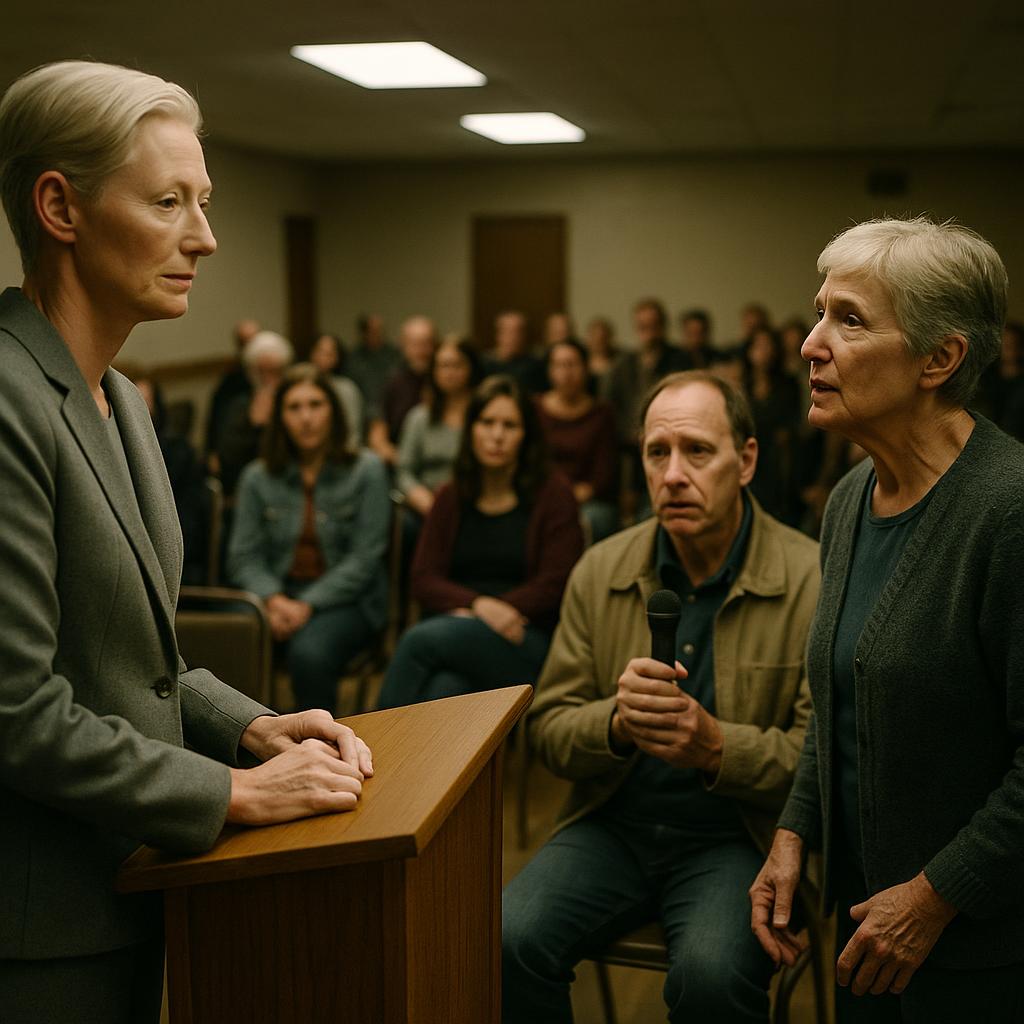 Image by RM AI
Image by RM AI
The Legal Proceedings
The courtroom fell silent as Walter shuffled in, handcuffed and wearing an orange jumpsuit that seemed to drain what little color remained from his face. I sat in the back row, Maya's hand squeezing mine as ADA Chen laid out the case against our former neighborhood tyrant. 'The defendant used his 25 years as a police officer not to protect and serve, but to intimidate and control,' she stated, her voice steady as she displayed Walter's meticulous harassment logs on the courtroom monitor. One by one, former coalition members approached the stand—Tom, Barbara, even the Andersons—each describing how Walter had twisted their legitimate concerns about property maintenance into something dark and targeted. 'He told us we were soldiers in a war for neighborhood purity,' Tom testified, unable to meet Walter's glare. Throughout it all, Walter sat unnervingly still, occasionally whispering to his attorney with the same smug confidence he'd shown when slapping notes on windshields. When finally addressed by the judge, Walter stood tall: 'Your Honor, I was simply protecting property values from undesirable elements. Someone had to maintain standards.' The judge's face hardened as she denied bail, citing 'substantial risk of witness intimidation.' As officers led Walter away, he locked eyes with me for just a moment—and the hatred I saw there made it clear that even from behind bars, this wasn't over.
 Image by RM AI
Image by RM AI
The Personal Cost
I never imagined that standing up to a neighborhood bully would make me a target myself. My inbox filled with messages like 'You'll regret crossing Walter' and 'We know where you live.' Someone even posted my home address on a forum dedicated to 'neighborhood defenders.' I tried reporting them, but for every account blocked, two more popped up. 'You need to step back,' Maya insisted one night, closing my laptop as I scrolled through another thread dissecting my personal life. 'They're trying to wear you down.' Part of me knew she was right, but walking away felt like letting Walter win from his jail cell. When Barbara invited me over for lasagna, I almost declined—until she texted, 'Trust me, you need this more than you realize.' Sitting at her kitchen table, watching her hands shake slightly as she poured tea, I saw a strength I hadn't noticed before. 'I spent fifteen years with a man who controlled everything,' she confessed, her voice steady despite the tremor in her hands. 'Walter's tactics—the surveillance, the isolation, the constant judgment—they're textbook abuse, just on a neighborhood scale.' She reached across the table and squeezed my hand. 'The hardest part isn't standing up to them,' she said. 'It's not letting them change who you are in the process.' What Barbara didn't know was that I'd already started to feel myself changing—and not for the better.
 Image by RM AI
Image by RM AI
The Unexpected Alliance
I nearly spilled my coffee when Gerald approached me after the community meeting with his proposal. 'I know I'm the last person you'd want to work with,' he said, his eyes fixed on the floor, 'but I understand Walter's playbook better than anyone.' He wanted us to create a community education program about recognizing manipulation tactics in neighborhood groups. My first instinct was to say no—this was the same man who had helped terrorize our community. But there was something different about him now; the nervous energy had been replaced with quiet determination. 'People need to know how legitimate concerns about property values or safety can be twisted into weapons,' he explained, showing me a draft outline he'd created. When I showed Maya later that evening, her eyebrows shot up. 'You're not seriously considering working with him?' she asked. I understood her skepticism—I shared it. But Gerald's insider knowledge could make this program actually work. 'He knows exactly how Walter recruited people who were lonely or felt powerless,' I argued. After much debate, Maya reluctantly agreed to help develop materials, though she insisted on keeping Gerald at arm's length. What none of us realized was that our little education program was about to attract attention from people far more dangerous than Walter had ever been.
 Image by RM AI
Image by RM AI
The Workshop Series
The first 'Community Without Intimidation' workshop felt like jumping off a cliff—terrifying but necessary. We reserved the community center's smallest room, expecting maybe ten people. When over forty showed up, folding chairs appeared from storage closets as latecomers lined the walls. Gerald stood at the front, visibly trembling as he described Walter's manipulation tactics. 'He made me feel like I belonged somewhere for the first time in years,' he admitted, his voice cracking. 'That's how they get you.' I followed with slides showing identical patterns in neighborhoods across the country—the same language, the same targeting criteria, even the same colored note paper. The questions afterward lasted twice as long as the presentation itself. 'I thought I was the only one,' an elderly woman confessed, dabbing at her eyes. 'They left notes on my door for months.' The library director approached us afterward, offering their meeting room for a monthly series. Within weeks, three neighboring towns reached out about bringing our program to their communities. These workshops became more than educational sessions—they transformed into healing spaces where people finally felt safe sharing their experiences. What none of us realized was that someone was taking detailed notes at every session, and they weren't there for healing.
 Image by RM AI
Image by RM AI
The Trial Begins
Six months after Walter's arrest, I found myself sitting in a packed courtroom, my palms sweating as I waited to be called to the witness stand. The trial had become a media circus—CNN had a sketch artist in the corner, and I'd spotted at least three true crime podcasters taking notes in the gallery. When the bailiff finally called my name, I felt like I was walking through molasses. 'Please describe what you observed on your dashcam footage,' the prosecutor asked, her voice steady and reassuring. As I recounted that day in the parking lot, Walter's eyes never left my face, his stare so intense I could practically feel it burning into me. His defense attorney—a slick guy in an expensive suit—tried to spin everything during cross-examination. 'Wasn't my client simply trying to maintain community standards?' he asked with practiced sincerity. I gripped the edge of the witness box. 'No. He was targeting specific people while ignoring actual parking violations. The dashcam showed everything.' When I stepped down, Gerald squeezed my shoulder as we passed. The most chilling moment came during the lunch recess, though, when I overheard Walter's attorney on his phone: 'Don't worry—even if we lose this case, the organization has contingency plans already in motion.'
 Image by RM AI
Image by RM AI
The Expert Testimony
The courtroom fell silent as Dr. Elaine Mercer took the stand, her silver-rimmed glasses catching the light as she arranged her notes. 'What we're seeing with Mr. Harmon's neighborhood coalition is textbook radicalization,' she explained, her calm academic tone cutting through the tension. 'He created what we call a permission structure—using legitimate concerns about property values to justify increasingly extreme actions against targeted residents.' I watched Walter's face darken as she methodically connected his tactics to known extremist recruitment patterns, complete with slides showing identical language from his basement manuals. When she described how 'community defenders' specifically prey on retirees seeking purpose and belonging, several jurors glanced at Gerald, who stared at his hands. Walter's attorney tried his best to paint her as an out-of-touch academic, but Dr. Mercer had receipts—twenty years of peer-reviewed research and consultation with the FBI on domestic extremism. 'The genius of neighborhood-level extremism,' she concluded, 'is that it hides in plain sight behind concerns that seem reasonable to outsiders.' What made my blood run cold was her final observation: 'And in my professional opinion, Mr. Harmon's network shows all the hallmarks of having a much larger organizational structure behind it than what we've uncovered so far.'
 Image by RM AI
Image by RM AI
The Verdict
The courtroom was so quiet I could hear the clock ticking as the jury filed back in. Two weeks of testimony, three days of deliberation, and now—the moment of truth. I gripped Maya's hand so tightly I'm surprised she didn't yelp. 'On the count of criminal harassment, we find the defendant guilty.' The forewoman's voice was steady, methodical. 'On the count of intimidation, guilty. On the count of civil rights violations, guilty.' Each 'guilty' felt like another brick being lifted off my chest. I glanced at ADA Chen, who gave me the smallest of nods, her professional composure barely containing a smile. Walter, meanwhile, sat unnervingly still, his face a mask of cold fury. When the judge revoked his bail and scheduled sentencing for next month, something in Walter finally cracked. As officers approached to lead him away, he twisted toward me, his eyes burning with hatred. 'This isn't over,' he hissed, loud enough for half the courtroom to hear. The officers tightened their grip, pulling him toward the door. I should have been terrified by his threat. Instead, I felt something unexpected: relief. For the first time in months, I could breathe. We had won. But as I watched Walter disappear through the courtroom door, I couldn't shake the feeling that his words weren't just the empty threat of a desperate man—they were a promise from someone who still had powerful friends on the outside.
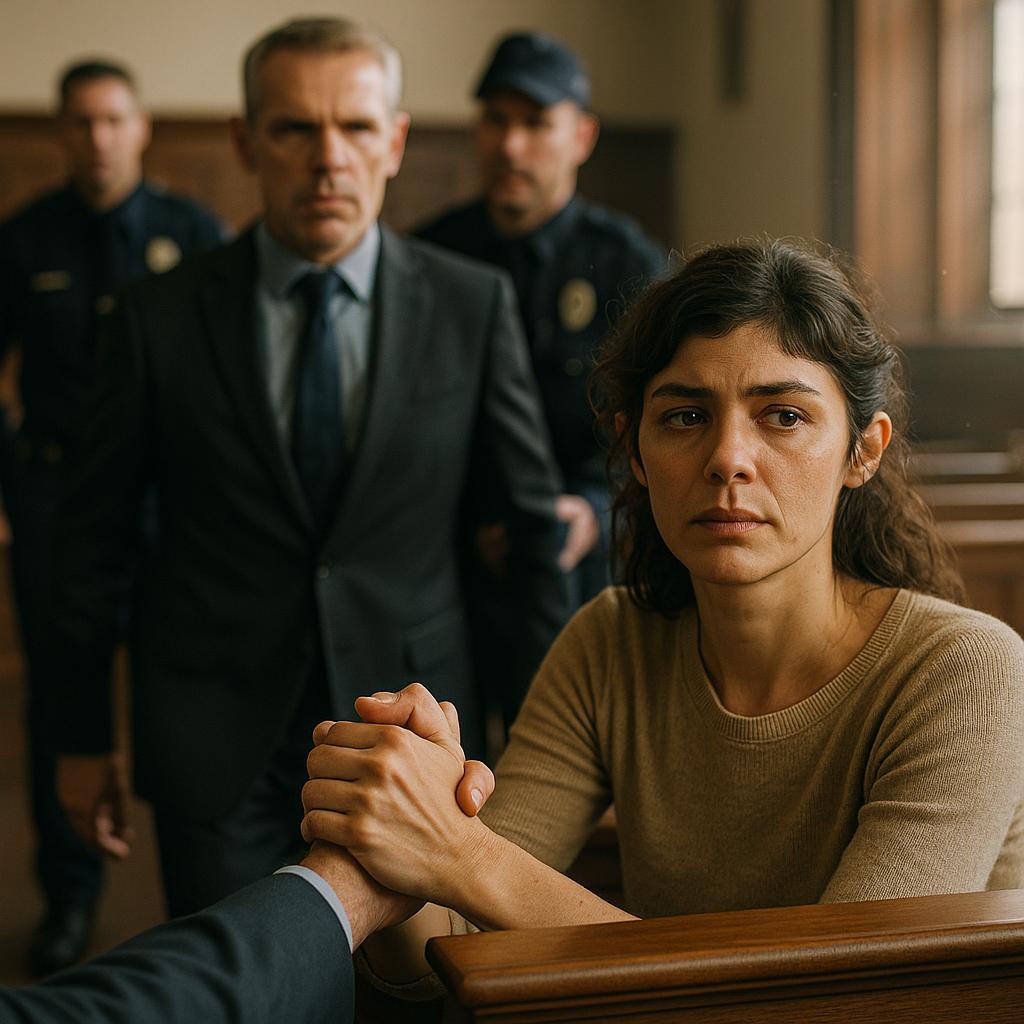 Image by RM AI
Image by RM AI
The National Recognition
I never imagined standing up to a parking lot bully would lead me to Washington D.C., yet here I was, adjusting my tie in a hotel mirror while Maya fussed with her dress and Gerald practiced his portion of the acceptance speech for the fifth time. The American Civil Liberties Coalition had selected our 'Community Without Intimidation' program for their Grassroots Activism Award, complete with a $250,000 grant to take our workshops nationwide. 'You look like you're about to throw up,' Maya whispered as we took our seats at the gala. She wasn't wrong. The ballroom was filled with senators, celebrities, and activists whose work I'd admired for years. When they called our names, the three of us walked to the podium together—me, the accidental activist; Maya, the strategic mastermind; and Gerald, the reformed insider whose testimony had helped convict Walter. 'From a single dashcam video to a national movement,' the presenter announced, handing us a crystal trophy that caught the light. What struck me most was meeting activists from Seattle, Miami, and Chicago who described neighborhood intimidation tactics identical to Walter's. 'This isn't coincidence,' a civil rights attorney from Detroit told me during the reception, her voice low. 'Someone's coordinating this nationwide.' As we flew home the next day, I couldn't shake the feeling that our little victory had just put us on the radar of something much bigger than Walter—something with resources that made our grant look like pocket change.
 Image by RM AI
Image by RM AI
The Sentencing
The sentencing day arrived with a tension so thick you could cut it with a knife. I sat in the second row of the courtroom, watching Walter's face remain emotionless as victim after victim approached the stand. The Rodriguez family's testimony hit me hardest – their 8-year-old daughter, once bubbly and outgoing, now refused to play in their front yard after Walter's 'volunteers' had photographed her and left notes claiming the family 'didn't belong in this neighborhood.' Mrs. Abernathy, her voice shaking but determined, described how at 72, she'd become a prisoner in her own home, afraid to garden or sit on her porch after months of harassment. When the judge finally spoke, her words cut through the room like ice: 'Mr. Harmon, you weaponized people's insecurities to create a campaign of terror against your own neighbors.' The five-year sentence felt simultaneously like justice and not nearly enough. Outside, a small but vocal group of Walter's supporters waved signs about 'community standards' and 'protecting property values.' One woman with perfectly highlighted hair spotted me and pointed, her face contorting with rage. 'That's the one who started this witch hunt!' she shouted. As reporters swarmed around me, I realized with a sinking feeling that Walter's imprisonment wouldn't end this – it might have just escalated it.
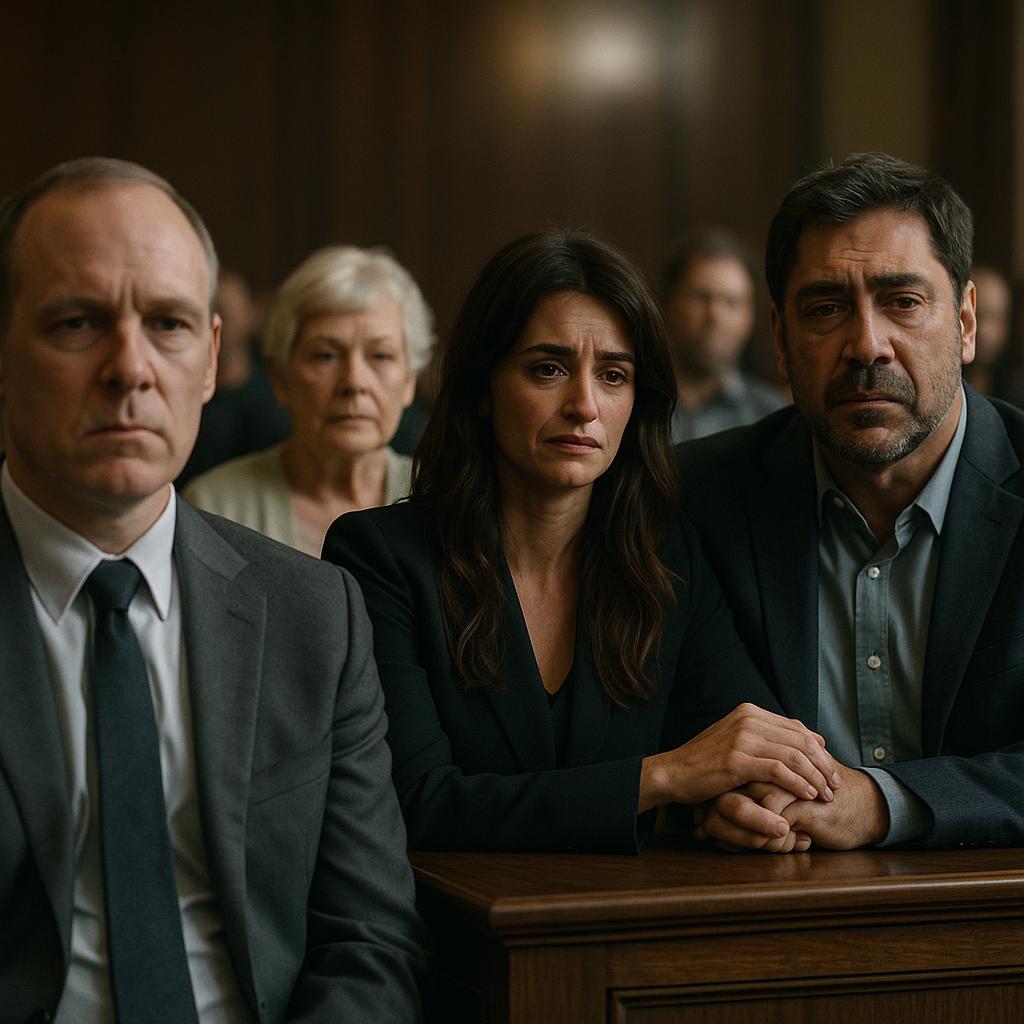 Image by RM AI
Image by RM AI
The Book Deal
The email from Penguin Random House sat in my inbox for three days before I had the courage to open it. 'Your story has national significance,' the acquisitions editor wrote. 'We'd like to offer you a book deal.' I nearly choked on my coffee. Me? An author? I forwarded it to Maya, who called me within minutes. 'You HAVE to do this,' she insisted, her voice vibrating with excitement. 'Think about how many people you could reach!' The publisher wanted the full story—from that first neon green note on my windshield to watching Walter being led away in handcuffs. They believed it captured something essential about America right now: how quickly communities can fracture, how loneliness makes people vulnerable to extremism, and how ordinary people can fight back. During our first Zoom call, the editor leaned forward, her bookshelf perfectly arranged behind her. 'What makes your story powerful is that it started with something so small,' she explained. 'A parking note! But it revealed this entire underground network.' I signed the contract a week later, still not entirely believing this was happening. That night, as I stared at my laptop screen, cursor blinking in an empty document titled 'Chapter One,' my phone buzzed with a text from an unknown number: 'Walter's friends don't want this book written.'
 Image by RM AI
Image by RM AI
The New Beginning
It's been exactly one year since I found that neon green note flapping on my windshield—a year that transformed not just my life but our entire community. Where Walter's "Parking Enforcement Volunteers" once prowled, we now have monthly block parties and a community garden. The new neighborhood association (aptly named "Neighbors, Not Enforcers") focuses on bringing people together rather than policing them apart. Gerald, once Walter's right-hand man, now spends weekends helping Mrs. Abernathy and other elderly residents with yard work and home repairs—his way of making amends. Barbara has become something of a local hero, running support groups for people escaping controlling relationships, whether domestic or community-based. Sometimes I walk through our neighborhood and barely recognize it—not because the houses have changed, but because people actually talk to each other now. Kids play freely in front yards without being photographed or reported. The dashcam footage that caught Walter in the act didn't just expose one man's power trip; it lanced a festering wound that had been dividing us for years. My book about the experience hits shelves next month, and the publisher says pre-orders are strong. What they don't know is that I've just received an email from someone claiming to be Walter's former mentor—and according to him, our little neighborhood was just a test case for something much bigger.
 Image by RM AI
Image by RM AI
The Documentary
The email from Iris Chen, award-winning documentary filmmaker, sat in my inbox with the subject line: 'Your Story Needs to Be Seen.' I almost dismissed it as spam until I noticed the PBS logo in her signature. 'Your dashcam footage was just the tip of the iceberg,' she explained during our first Zoom call, her intensity radiating through the screen. 'We've tracked similar harassment patterns in over thirty communities across twelve states.' She showed me a map dotted with red pins—each representing a neighborhood where someone like Walter had established a 'standards enforcement' group. The similarities were uncanny: the same colored notes, identical language in their 'violation' notices, even the same recruitment tactics targeting lonely retirees. 'This isn't coincidental,' Iris said, pushing her glasses up. 'Someone's providing a playbook.' When I mentioned the documentary to Maya, she immediately worried about retaliation. 'You've already got threats from the book deal,' she reminded me. But Gerald surprised us both by volunteering for on-camera interviews. 'People need to see how easy it is to get pulled into something toxic when you're just looking for purpose,' he said quietly. What none of us realized was that Iris's research team had already identified the organization behind these neighborhood networks—and filming our story was about to make us targets of people far more dangerous than Walter.
 Image by RM AI
Image by RM AI
Full Circle
Two years to the day after finding that neon green note, I found myself back at the same grocery store, loading bags into my trunk. The universe has a funny way of bringing things full circle. As I closed my trunk, I noticed an elderly woman a few spaces down, staring at a white slip of paper on her windshield with that unmistakable look of distress. Without thinking, I walked over. "Excuse me, ma'am, is everything okay?" She turned, clutching the paper—an actual parking violation notice from store management. Her car was halfway into a loading zone. "I don't understand," she said, voice trembling. "I thought I parked correctly." I smiled gently and offered to help her repark. As I explained the difference between legitimate notices and harassment tactics, her eyes widened. "Wait a minute," she said, studying my face. "Aren't you that person from the news? The one who caught that parking vigilante with a dashcam?" I nodded, surprised to be recognized. "My grandson showed me your documentary," she continued. "He's studying law now because of your case." Walking back to my car, I felt a wave of emotion wash over me. That horrible note had sparked something bigger than I could have imagined—a movement that had changed laws in twelve states and counting. But what I didn't know then was that Walter's organization was about to make its most dangerous move yet.
 Image by RM AI
Image by RM AI
KEEP ON READING
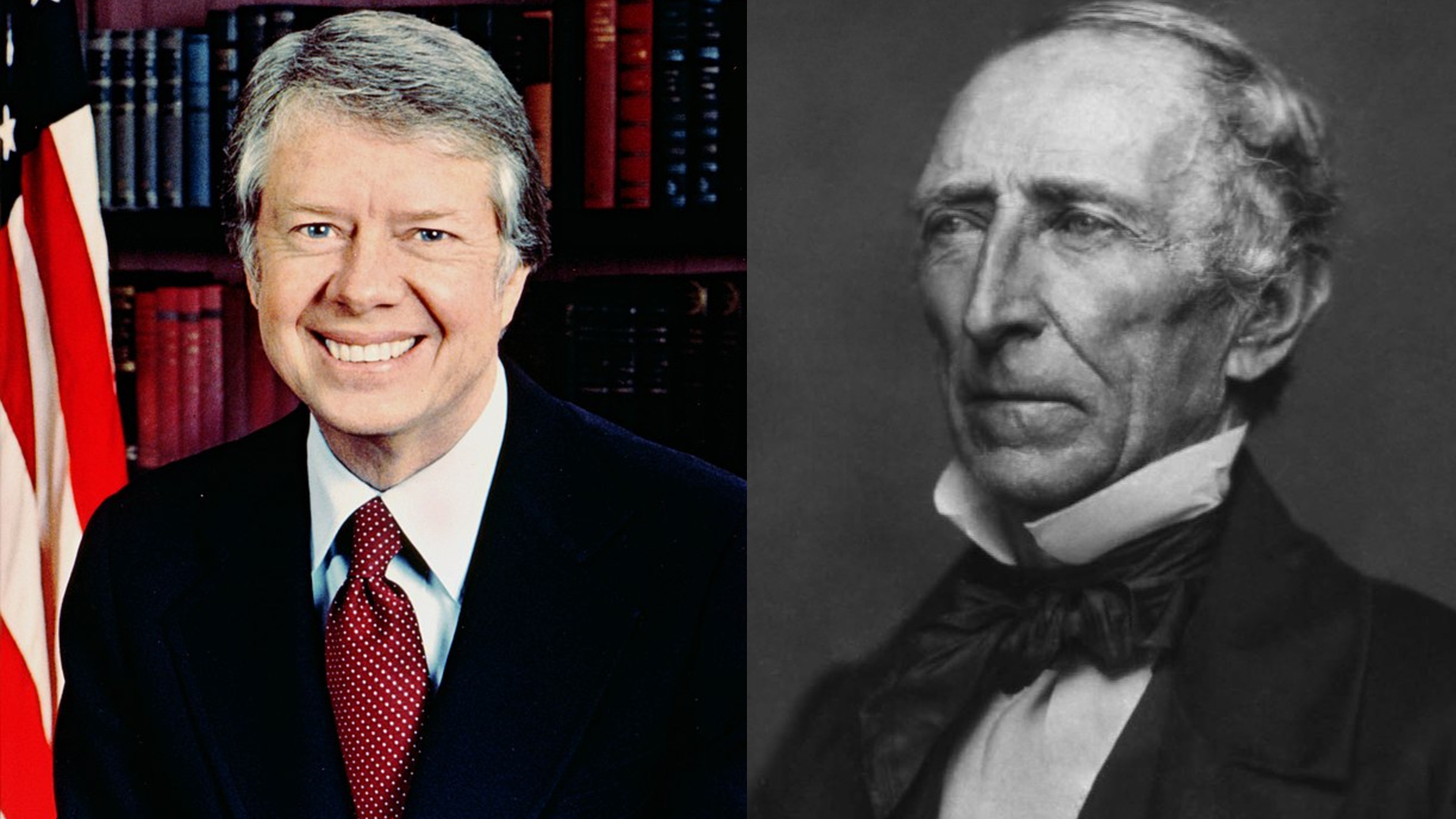
1 Weird Fact About Every President
Washington, Lincoln, FDR. Most people know something about the lives…
By Robbie Woods Dec 3, 2024
10 Actors Who Perfectly Played a Historical Figure & 10…
Which Performance is Your Favorite?. Playing the role of a…
By Rob Shapiro Sep 15, 2025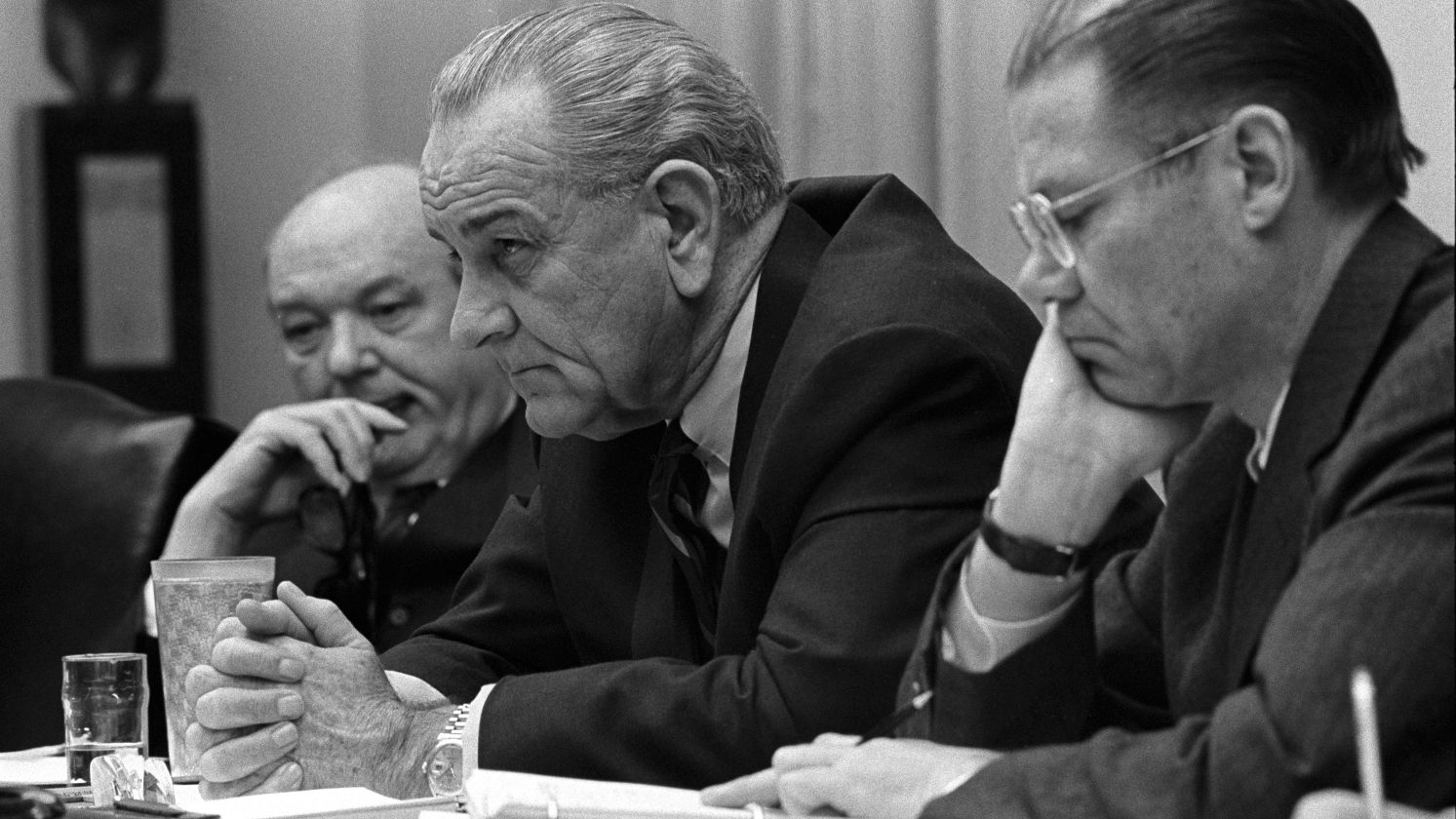
10 Actors Who Weren't Up To Playing A U.S. President…
Who Wouldn't Vote Woody Harrelson for President?. Actors who sign…
By Rob Shapiro Oct 22, 2025
10 Amazing Popes & 10 Who Weren't So Great
An Odd Cast of Characters Throughout History. From popes who…
By Henry Judd Apr 29, 2025
10 Ancient Civilizations You Don’t Want to Be Trapped In…
Grab Your Time Machine. Trying to pick out an ancient…
By Farva Ivkovic Feb 21, 2025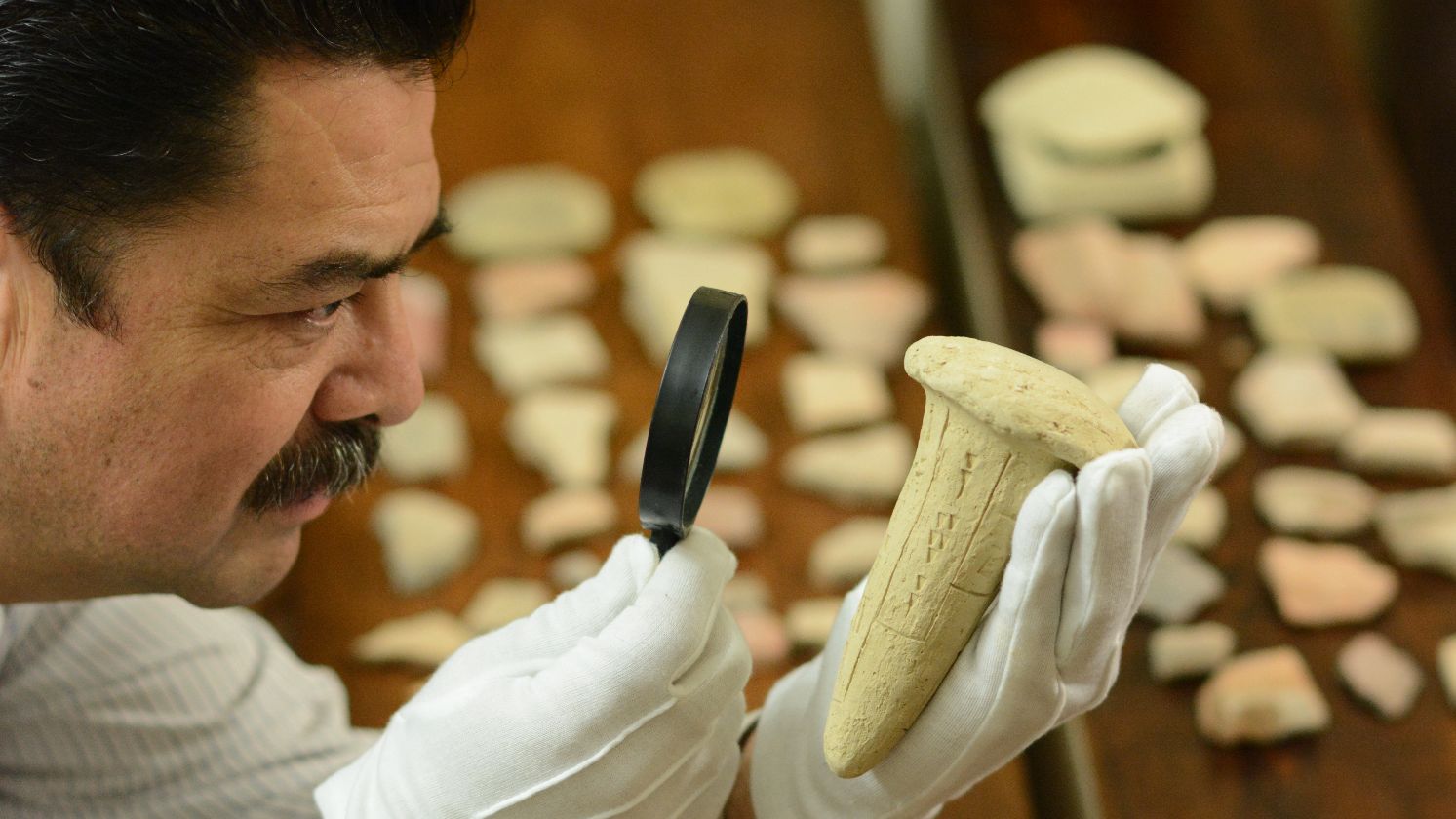
10 Ancient Lost Cities Yet To Be Found & 10…
Will You Find The Next Lost City?. Based on our…
By Breanna Schnurr Aug 27, 2025
